













Sarath Shyam
Consultant Editors




Enquiry: admin@k12digest.com
Charlie Jameson
Sales & Marketing
Enquiry: admin@k12digest.com

Connecta Global LLC 16192 Coastal Highway, Lewes, DE 19958, USA Europe
Connecta Global Ltd. 27, Old Gloucester Street, London, WC1N 3AX, UK
Focus Innovation Technologies FZE P.O. Box 48299, Dubai Silicon Oasis, Dubai, UAE
Connecta Innovation Pvt. Ltd.


Ramanashree Arcade, 18 MG Road, Bangalore – 560001, India
K12 Digest is a digital magazine published by Connecta Innovation Private Limited. All rights reserved. The opinions expressed in the content and pictures provided are those of the authors. They do not purport to reflect the opinions or views of the Connecta Innovation Private Limited or any of its members and we do not assume any responsibility. The publisher does not assume any responsibility for the advertisements, its content, pictures, and all representation of warranties made in such advertisements are those of the advertisers and not of the publisher. K12 Digest is a Free Subscription digital magazine strictly not for sale and has to be strictly for internal private use only. Publisher does not assume any responsibility arising out of anyone printing copy of this digital magazine in any format and in any country and all matters related to that.

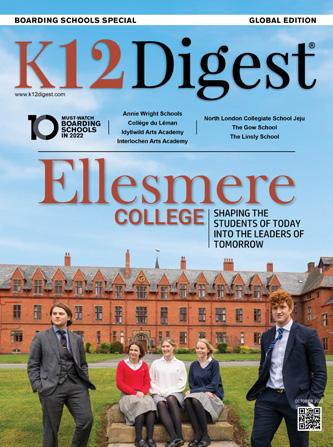


Thinking of studying in a boarding school might make it a little difficult for someone who has never been away from home. But those who have been to boarding school rate their school experience as very satisfactory, as they felt more prepared for life after graduation. Indeed, boarding schools offer students an experience unlike any other, as students can immerse themselves in their education, grow within a supportive and diverse community, and position themselves for success after school.
The opportunity to live, play, study, and socialize among peers makes a boarding school an attractive proposition for students. Especially an international boarding school brings people from different countries with different backgrounds, creating a cosmopolitan atmosphere where students can expand their perspectives and horizons as they learn together both in and out of the classroom. There, it is 24x7 learning with challenging academics, abundant arts and athletics offerings, and a supervised, structured
student life experience. Academic experts say that boarding school students tend to develop life skills such as time management, work ethic, and independence in an accelerated manner than public school students.
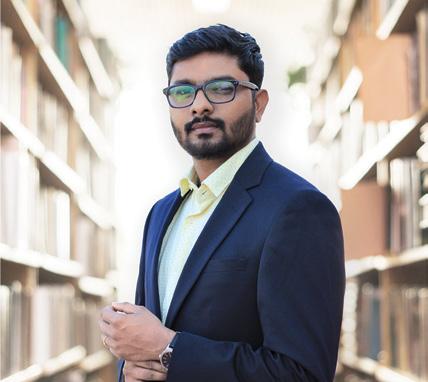
In this issue, we have identified ‘10 MustWatch Boarding Schools in 2022’ offering an experience-centered environment to help students grow in self-discipline and develop a strong work ethic that will prepare them for higher education. Our expert panel of academicians and leaders has handpicked schools all over the world that have been performing exceptionally well despite the pandemic hiccups. On the cover, we feature Ellesmere College, which was accredited as a ‘High Performance Learning (HPL) World Class School’– one of only 39 schools worldwide demonstrating a world-class quality of education throughout the school and across all areas –academics, sports, and co-curricular. Enjoy Reading.
Sarath ShyamFormer International School Principal, Former Group Project Director at a World Class Learning Group, Education Consultant - Wright Solutions, United Kingdom

Chief Education Officer, New Nordic School, Finland
Exceptional Educator from Serbia, Founder of Association of the Best Teachers of the Former Yugoslavia, Founder of Magical Intercultural Friendship Network, Founder of Creative Magic - Children’s International Festival, Founder of Magic Village, Serbia
Assistant Professor in Education, Ph.D. Supervisor and Researcher, Thailand

Senior Teacher‘Pashko Vasa’ school Shkodra, Exceptional Volunteer, Albania
Founder & CEO - Paths to Math Ltd, Former Mathematics Teacher and Principal, Global Teacher Prize Finalist, Finland

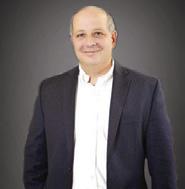

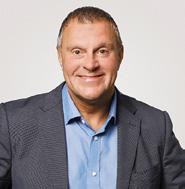
English and Literature teacher, Owner of “The Smart Teens Studio of English” in Belgorod, Russia

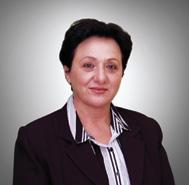
Senior Educationist, Author, Keynote Speaker, Co-founderTríade Educacional, Brazil
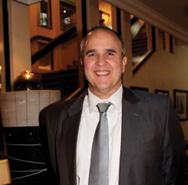
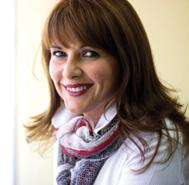
Former Director School Administration & Business Operations (Large Education Group), Chief Operating Officer - BBD Education, Netherlands & UAE
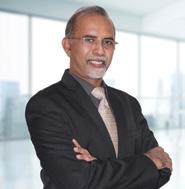
Former Program Director, MS in Management Program, GSATM - AU, Thailand & India

Founder & National President - ATAST, General director of IFEST² the international projects competition in Tunisia, General secretary of MILSET Africa, BRISECC member, Tunisia

Master Teacher, Researcher, Innovator, Trainer, Philippines
Rania LampouGlobal Teacher Prize Finalist 2019, 15 International Awards on STEM, STEM Instructor, Educator, Neuroscience Researcher, Trainer & Author, Greece
Al Ittihad National Private School-Al Ain, United Arab Emirates
Deputy Head and Dean of Faculty, Dalton Academy, Beijing, China Revolutionary English Educator, Globally Connected English Studio - Hanoi, Vietnam

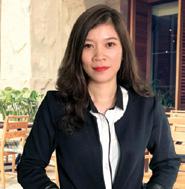
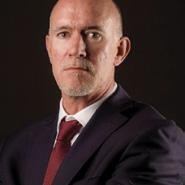
Former Vice President Security (Large Education Group), Former British Army Officer (Airborne Forces), Senior Advisor – Resilience and Crisis Management (Emerald Solutions Group), United Kingdom & UAE
Innovative English and ICT Teacher, Author, Japan

Distinguished Senior EFL Teacher, ISA Coordinator with the British Council, Motivational Speaker, Tunisia


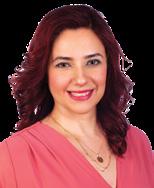
EdTech Specialist, Speaker and Teacher Trainer, Innovative ICT Educator, ICT learning multimedia developer, Indonesia
Juan Manuel Pico Co-founder & Managing Partner, Education Soul, Colombia
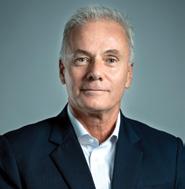
Innovative Educator of Online Classroom, Pungsaeng Middle School, South Korea
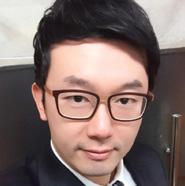
Master Teacher, Speaker and Researcher, Philippines

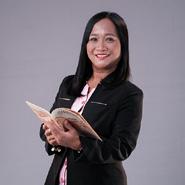
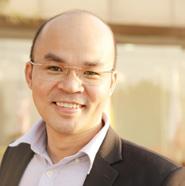
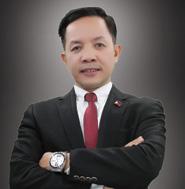
Technology Academy Manager, Microsoft Learning Consultant, Global Trainer, Vietnam
Senior Director – Global Partnerships, Advisory & Consulting – Connecta® | Head of Advisory Board – Higher Education Digest® & K12 Digest® | Adjunct Faculty –Assumption University | Former CIO – Athena Education | Former Global Director Technology – GEMS Education


SHAPING THE STUDENTS OF TODAY INTO THE LEADERS OF TOMORROW
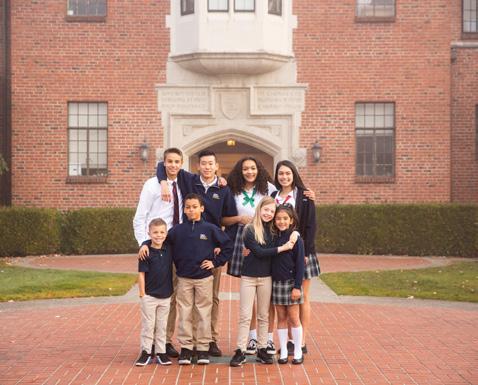
Cultivating Individual Learners to Become Responsible Citizens


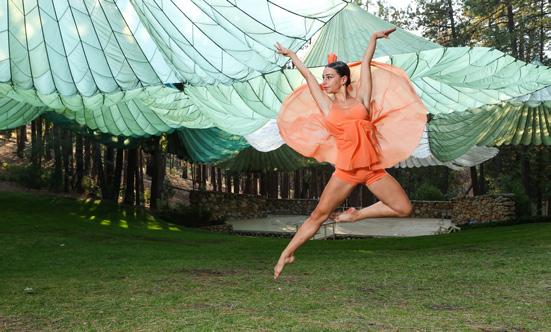

Changing the World for the Better, one Artistic Step at a Time!

Shaping Generations that Harness Differences to Change our World for the Better
COLLÈGE DU LÉMAN

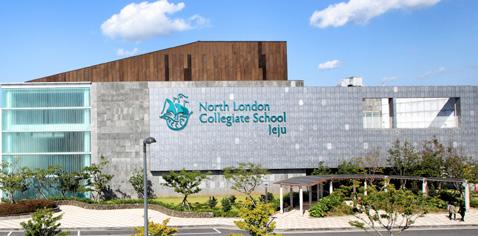
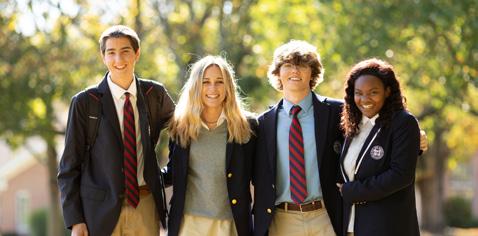

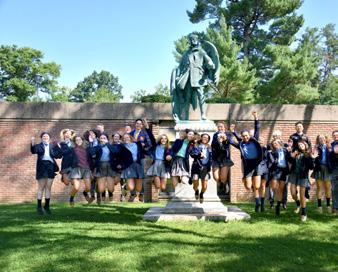
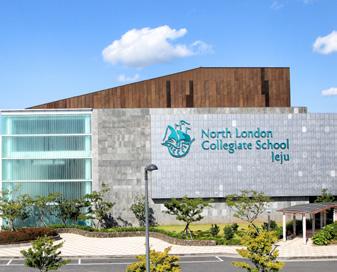


for
Manuel Hernandez, Language Arts Teacher, Florida Department of Education
Engy Olama, Certified Erickson and Lanning Concept-based Trainer, Happiness Coach, UAE


Alon Yamin, CEO and Co-Founder, Copyleaks
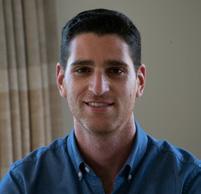

Dr. Conrad Hughes, Campus & Secondary Principal, International School of Geneva, Switzerland



Dr. Hans Andrews, Distinguished Fellow in Community College Leadership, Olney Central College, Illinois, USA

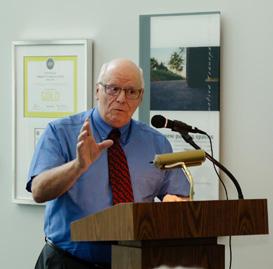

Dr. Heru Keonté, School Principal, John P. Holland Charter School, USA
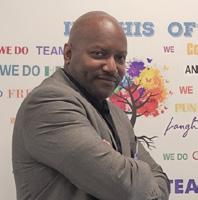

Manuel Hernandez, Language Arts Teacher, Florida Department of Education
AsanEnglishasaSecondLanguage(ESL)teacherinNewYorkCity,ManuelHernandezhadmanyrecently arrivedstudentsfromallovertheworld.Determinedtobridgethatgap,hediscoveredculturallyresponsive teaching.PurposecalledhimtocometoCentralFloridaandusehisteachingexperiencetofacilitatelanguage learningandgetyoungadults(particularlyimmigrants)collegeandcareerready.AfterseveralyearsinFlorida, hehasbeenabletohelpopentheacademicdoorsthatwereshutformanyoftherecentlyarrivedstudents.His ComingtoAmerica(CTA)educationalprogramhasimpactedsecondlanguagelearnersinFlorida.

Every year less and less students register in college. College enrollment continues to decline at an alarming rate. According to the National Student Clearinghouse Research Center, total college registration in 2019 decreased 1.7% (or about 300,000 students) from the previous spring. For eight years in a row, college enrollment has declined. However, Covid-19 has become one of college enrollment’s greatest antagonist, and it faces its greatest challenge ever. Fostering college enrollment is not only an idea but a must among colleges and universities in the United States.
While the transition to online teaching has become part of college culture, the resistance to the new mode of classroom instruction may come from undergraduate students who started their experience with the expectation of face-toface instruction but found themselves in front of a
computer and at home for their initial experience in college. With the sudden and unexpected shift to online teaching because of Covid-19 from March to May of 2020, the experience of thousands of incoming freshmen students was based on their online classroom experience in high school. The everyday classroom experience took a U-turn and online teaching became an improvised normal for thousands if not millions of students. Fostering college enrollment may take more than just online apps, technological resources, and tools on how to register, access and take online classes.
In Florida alone, there has been a -4% decrease from 2019 to October 2020 (https:// nscresearchcenter.org/stay-informed/). The four percent decline can be attributed to colleges going completely online for 2020-2021. Curiously, graduate enrollment has increased, but the increase may be in jeopardy in the future if
Fostering college enrollment may take more than just online apps, technological resources, and tools on how to register, access and take online classes
colleges and universities do not start designing strategies to foster college enrollment among its growing young adult population, especially those who are relocating from outside countries to the Sunshine State (Florida) with very little knowledge of the online classroom experience. The resistance to online teaching comes from those who for too long were accustomed to face-to-face instruction, and a bridge was never built to help them walk across, pay the toll, and make it to the other side.
The resistance can only be met with a clear and focused understanding of a cultural transformation in the making and in progress of what education was, is and will be. The antagonist is not going away that easily, and it will take more than sheer will to engage the thousands of young adults who decided to stay home and wait for face-to-face instruction to come back to the educational arena.
Training teachers in the educational arena may be an unsurmountable task. To add to the task, there is a nationwide shortage of teachers. With major corporations offering high paying jobs to Math, STEM and Science teachers, and retiring Baby Boomers of one of the oldest professions, the crisis has no “light at the end of the tunnel”. With minority populations moving into Central Florida, Texas and other cities at unprecedented rates, the educational system is stagnant in the outbreak of a plague and the increase of English Speakers of Other Languages (ESOL students).
A programmatic approach aligned to a culturally relevant response is an alternative to foster college enrollment. Preparing emerging bilinguals with the college and
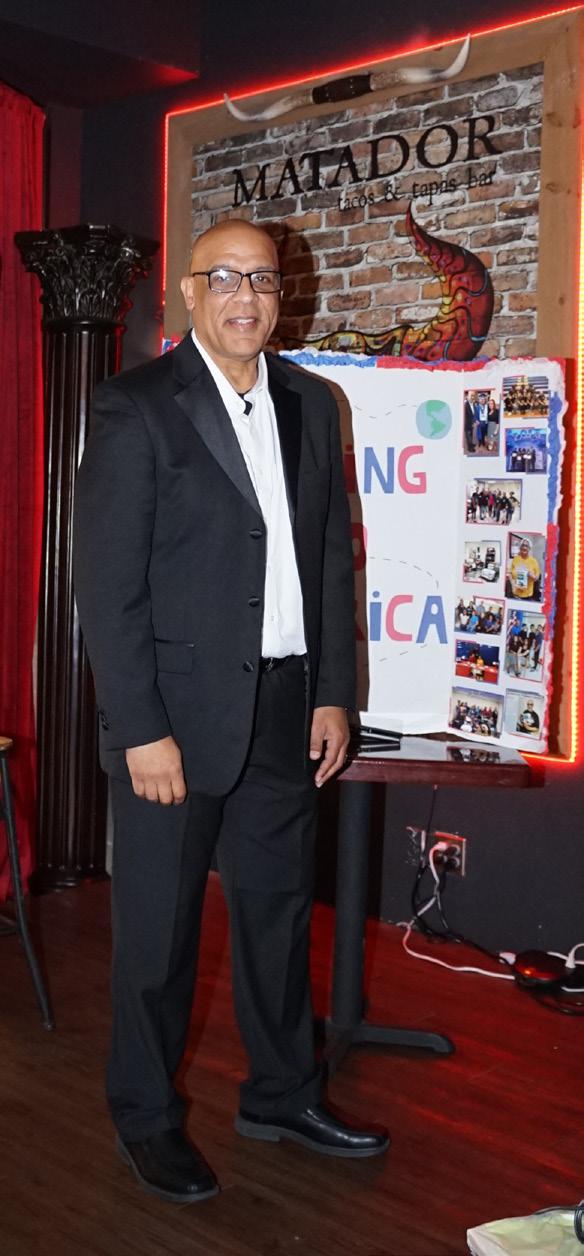
career readiness skills necessary to achieve their full potential is key in the dynamic and “real time” alternative. First, it is smart to create mentorship opportunities with colleges and
scholarship essays facilitating their pathway for scholarship, grants, and career readiness at the same time. The learning experience and adjustment to new teaching modes must be more than just giving students laptops, and other technological devices.
Online instruction has been a success but fostering it will require a vision to depict it differently than the classroom experience that hundreds of thousands of high school seniors had right before they graduated from high school. It is up to those who are interested in increasing their numbers to change that lasting impression and recapture the faith in education from students whose high school education ended abruptly and differently than no other experience in history. To equip emerging bilinguals and other students with college and career readiness skills necessary to achieve their full potential, there is a need to bridge the cultural divide by creating opportunities and achieve holistic success in all learners.
empower high school students with college and career readiness skills. Second, it is essential to provide writing workshops for students on how to write, build and publish their stories of pain and relocation and transform them into
Even the greatest architects have had to make deviations from their original blueprint to build bridges. Success is not totally controlled through a document, but it is sustained through constant failure, focused practice, and everchanging results. Learning and collaboration are the core of what education should be and where it will go in the years to come. Carol Dweck discovered that challenges open the gateways of a growth-mindset; only vulnerability and failure occur because of challenges but with determination may result into major success. With a culturally relevant response, college enrollment will slowly, steadfastly and gradually increase and maintain a steady pace towards excellence.
Online instruction has been a success but fostering it will require a vision to depict it differently than the classroom experience that hundreds of thousands of high school seniors had right before they graduated from high school


COLLEGE SHAPING THE STUDENTS OF TODAY INTO THE LEADERS OF TOMORROW
Settled in the beautiful Shropshire countryside since 1884, Ellesmere College is an independent 7-18 coeducational day, weekly and full boarding school providing outstanding educational and personal success for all students – whether local, regional or international. At every point of entry to the College, students are offered a broad choice of academic subjects as well as a vast range of cocurricular activities that develop essential life skills such as leadership, initiative, confidence, team building, and above all, a belief in themselves that they can achieve if they try their best – the ethos at the heart of Ellesmere to be ’Life: Ready’.
Recently, Ellesmere College was accredited as a ‘High Performance Learning (HPL) World Class School’– one of only 39 schools worldwide demonstrating a world-class quality of education throughout the school and across all areas – academics, sports, and co-curricular.
Infrastructure & Facilities Set in peaceful surroundings, Ellesmere pupils receive an exceptional, personalised education enabling them to develop into confident and successful young adults. The campus layout is designed to allow each pupil to have full exposure to a wide variety of new and challenging environments, to take them out of their comfort zone and challenge them to achieve greater things. Moreover, a wide-

ranging curriculum and activities programme enables each student with the opportunity to advance in The Arts, Music, Drama, and Sports or to develop leadership and entrepreneurial skills.
The campus also houses a nine-hole golf course, two fitness suites, 4 indoor court tennis barn, an all-weather astro-turf hockey pitch, an indoor swimming pool, 3 shooting ranges, 200-seat performance theatre, a recording studio, and an Arts and Music school. These specially curated and dedicated areas enable all pupils to find places they have a natural affinity with, which is a base for further growth and development.
Ellesmere College is split into three sections by age in terms of academic structure. For Lower

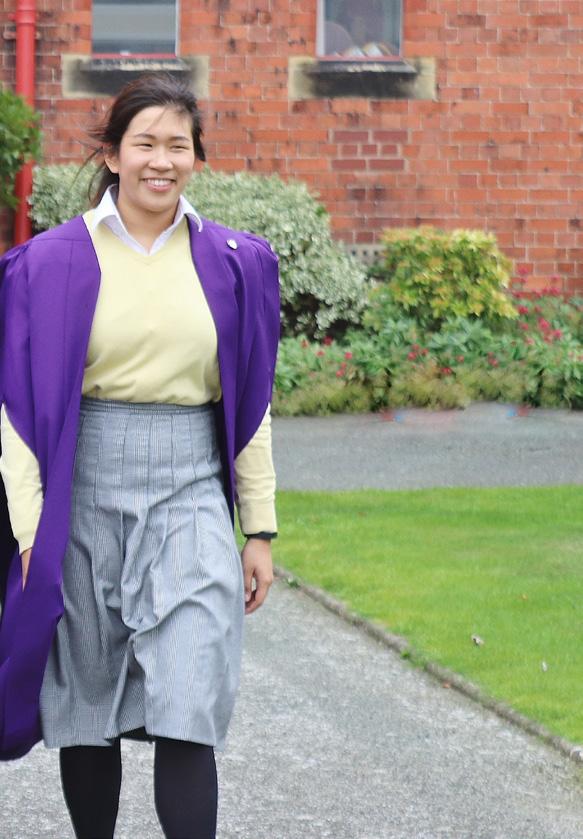
School (Ages 7 – 13), the programme’s focus is to form independent young people who are confident in their skills and ability to express themselves. In Middle School (Ages 13 – 16), pupils are prepared for GCSE starting in year 9, which allows them to identify and make early choices in their areas of interest. There is also a one-year GCSE/IGCSE course available and this proves very popular among international students and prepares them thoroughly for Sixth Form studies (both IB and A Level) in an English language medium school. In the sixth form (Ages 16 – 18), students can choose from 3 different academic routes, namely A Levels, BTEC, or the International Baccalaureate (IB).
Impressively, 85% of Ellesmere students gain entrance to their first-choice university, including Oxford, Cambridge and Russell Group institutions. The College is ranked in the top 20 British schools offering the IB curriculum. It has recently launched the International Foundation Programme (IFP) in association with UoL (University of London) – which is a one-year pre-university preparation course.

All pupils are, in essence, following an individualised learning programme. The options they choose in Middle and Senior School are developed from a long-term understanding by teachers through their own academic tracking and assessment reviews. This helps the teachers to highlight to pupils their individual targets, academic areas of strength and to help shape the next steps with the pupil and parents as a whole and so a detailed approach to decision making.
Timetables are adjusted according to the needs of each pupil, so if an international pupil needs some EAL support, this will be built into the timetable. Likewise, if the pupils need some one-to-one learning support, this too will be built into the individual timetable.
Music and sports coaching and lessons are also created and designed to accommodate the working timetable so that every pupil has a timetable and structure unique to their own needs, ambitions, and choices.
Ellesmere’s total commitment to developing individuals, enabling them to be successful human beings, is something that genuinely marks it out from the vast majority of other schools. Here, everyone is valued equally. If a student is outstandingly good at something, that does not make them better than anyone else; the College celebrates every child’s progress at every stage.
Moreover, Ellesmere College has successfully implemented the HighPerformance Learning approach, unlike most schools across the globe, throughout the whole school system, from Lower School to Sixth Form. HPL reflects what is already known about advanced thinking skills and learning behaviours, helping pupils to develop skills


and attitudes like confidence, agile thinking, perseverance and a greater awareness and concern for the society we live in - ensuring they are fully prepared for the path of study, work and life which lie ahead.
At Ellesmere College, all teachers are degree educated; many are from Russell Group Universities throughout the UK, while some are from overseas. Moreover, professional development is a key component within the Ellesmere structure and therefore, each subject department ensures that each member of the team is involved in both in-house and external training programmes throughout each academic year to allow for best practice and sharing of ideas with regular cross-curricular meeting
and academic group hubs for information and skill sharing.
Likewise, the College also supports staff for further academic qualifications, with several faculty leaders currently following an MBA course funded and supported by the College. The teaching staff also attend regular training on INSET days to cover whole school themes, and any staff member is allowed to come forward and recommend a course they are keen to attend. This creates a culture where CPD is the norm, and the development of each team member strengthens the whole body of teachers in the community.
From the very young pupils who join the Lower School, Ellesmere College sends

weekly newsletters to parents to keep them up-to-date on what has happened and is coming up. The College also hosts informal teatime concerts every half-term, where all pupils can showcase something they have learnt, produced or developed to a supportive and engaging audience; this exposure from an early age gives the pupils the confidence to strive for better and take bigger leaps in their own pursuits, and this is at the heart of a successful education.
Moreover, parents can also track performance through Ellesmere’s regular period grade reviews and have constant dialogue with the personal tutor, so at all stages, parents play a key part and component in their child’s learning process. Likewise, parents can access FROG, where all teachers’ resources are available, and all homework is
set. Parents are also invited and encouraged to attend various events throughout the year, motivating the students to strive for excellence and become their best version.
Through Ellesmere’s pastoral programme, each pupil gets an opportunity to be mentored by an outstanding tutor who helps to recognise, reflect upon, and develop necessary skills and competencies. Pupils, in turn, record their experiences in a ‘reflective’ log book that they can take with them throughout the stages of their time at the College. As part of their timetable, they also spend two afternoons a week exploring sports and leadership opportunities that help develop and support a student’s ‘softer’ skills.

In this way, the structure of each student’s programme not only develops the skills needed to become a potential leader or entrepreneur but also provides pupils with an opportunity to become more self-aware and confident. Therefore, being ‘Life Ready’ is not just a phrase but a philosophy shared by the whole Ellesmere community that shapes today’s students into tomorrow’s leaders.
Ellesmere College has always believed that each pupil will follow a unique journey based on their own likes, interests and abilities and these abilities are celebrated at every stage of the process. Hence, success at Ellesmere is defined by judging each student’s own individual strengths, unique skills, abilities, and talents rather than doing so against some arbitrary standard.
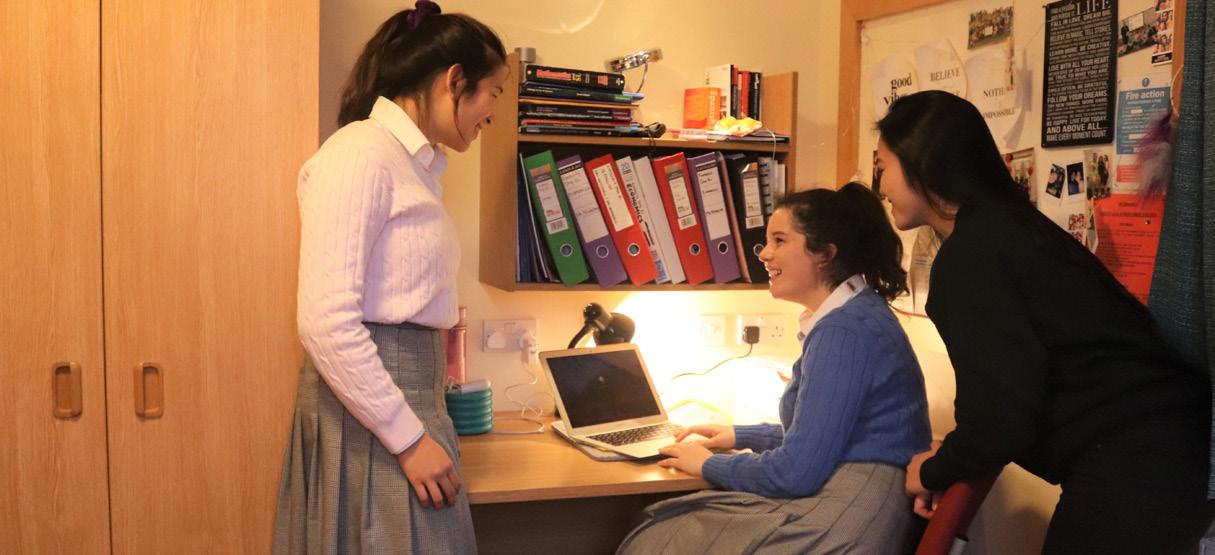
Additionally, HPL, playing an integral role, helping to develop the pupils’ creative mindset. As a result, Ellesmere College’s Life Ready philosophy is resonated with alumni who have and continue to create successful career paths for themselves, from sports athletes to doctors to NASA engineers to artists to military roles.
Ellesmere College is a WAoS (World Academy of Sport) Athlete Friendly Education Centre (AFEC), which provides greater flexibility to students to balance their studies with demanding training and competition schedules.
In addition, Ellesmere College was the first Independent School to be awarded Artsmark Platinum by the Arts Council of Great Britain for its commitment and delivery of the arts from the traditional to more modern media. The College has also received the Cricketer Top 100
Schools award for the last 5 years in a row, Top 20 Sports school award, LTA Regional Tennis Awards, and Education Business Awards for Music, Sport and Student support.
At the onset of the COVID-19 pandemic, Ellesmere College created a new digital learning environment with the message that “every day is a school day”. This was made possible by the efforts taken by the staff, who upskilled themselves in record time and also extended support and advice to others as they manoeuvred through the steepest of learning curves. The College also hosted several webinars from alumni where guest speakers shared their insights and workplace
challenges with the pupils. Similarly, pupils took the lead in lessons and delivered mini talks, stories, films, and cartoons on engaging topics to share and help others. In addition to the live lessons from Monday to Friday, there were tutor quizzes, daily individual music performances, not to mention our own version of the Jo Wicks’ daily fitness sessions and weekly sports challenges.
Later on, when the vast majority of pupils had returned by mid-August, the College provided an early arrival opportunity to support pupils and this helped them in settling into a new routine which allowed them the platform to get some initial preparation work started for their new courses and to settle comfortably into the Ellesmere community. In this manner,

Ellesmere’s Life Ready philosophy not only taught pupils to deal with and overcome challenging times such as a pandemic but is also preparing them for the world beyond the school gates.
Ellesmere College is working closely with several international partners who are keen to explore setting up a partnership with the College to develop an international school across many vital territories. The aim is to establish schools that mirror the same ethos, culture, academic
and co-curricular programmes with the focus on individual student success; this is indeed and exciting time and an opportunity to allow pupils the world over the chance to experience an Ellesmere Education for themselves.
Going ahead, there will also be continued investment and enhancements made into the current boarding and classroom facilities to ensure an environment that is first-class and suited to the needs of every pupil. For all who work at Ellesmere, it will be to continually strive to support and care for each pupil across all year groups and all ages.

The microlearning educational platform with key learnings and official lessons available to everyone.
Students can use Luca to reinforce what they’ve learned in school, do homework, review, study for tests and learn new concepts for the first time.

Improves student and academic performance. Increases participation in classes, improves study habits and increases the learning routine.
Educational platform available 24/7. Luca is always present in the study routine and allows access from anywhere and at any time.
Increases the level of attention in class. Luca helps students by providing learning tools that allow them to be attentive in classes.
Now operating in LATAM and developed by experts in pedagogy, with previous experience in leading educational publishers such as Santillana, and tech companies such as Crehana, Netflix and Uber.
To know more about Luca, follow us on social media
/Lucaeducacion /Lucaeducacion /LucaeducacionADMIN PERSPECTIVE
What are the current trends that are shaping education in the post-COVID era?
Diversity, Inclusion, Equity and Social Justice is an important and deep shift in awareness that is causing educators and leaders to think differently about questions of identity, culture, power and representation. Student and teacher wellbeing is also in focus as there is an increased understanding of the mental toll that Covid took on us and the importance of emotions in learning. Competencebased frameworks are taking over from the idea of “21st Century skills” and alternative transcripts that describe the whole person and not just narrow academic performance are becoming an increasingly important force in educational reform. Essentially, we are looking at making education more human, more personal.
ConradHughes(PhD,EdD)isCampusandSecondary Principal at the International School of Geneva, La Grande Boissière, the oldest international school in the world where he also teaches philosophy. He holds two doctorates. Dr. Hughes led two major projects with UNESCO-IBE to rethink the guiding principles for learning in the 21st Century and preventing violent extremism through education. He has published three books on different aspects of 21st Century learning. Understanding Education and Prejudice (2017) looks at how schools and universities can reduce prejudicial thinking in students and instructors; in Educating for the 21st Century (2019), he investigates how educational systems can address societal challenges such as sustainability, the rise of AI, post-truth politics, mindfulness and future-proof knowledge. His latest book, Education and Elitism (2021), discusses how access to high quality education can be widened. In a recent chat with K12 Digest, Dr. Hughes discusses the current trends in education, attributes that make International School of Geneva unique, his prolific career, future plans, and a lot more. Following are the excerpts from the interview.
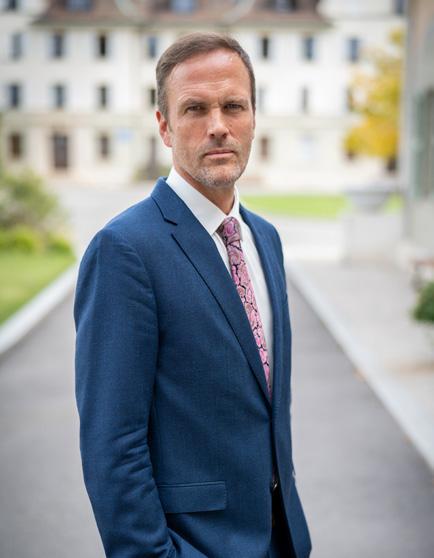
I keep telling myself, be humble, listen, don’t judge too quickly, have the courage to do what is right, stay moral and balanced and fair in the decisions you take
Please tell us about the behind the scenes preparation that the International School of Geneva did before opening of the 20222023 school year.

Any school year takes much preparation behind the scenes. This varies from systems and processes management to quality professional development for teachers, the onboarding of new faculty and welcoming new students and parents. School leaders need to create back to school atmospheres that are at once psychologically safe but also exciting and inspirational. It’s an important time to do spirit-lifting messaging and not to start the year
with boring, uniquely technical points. Too much happens as we prepare for school to detail in a few sentences, so I will rather focus on the essentials, which can be expressed in the following two powerful questions:
1.Is the roadmap ahead clear for everybody?
2.Are we feeling inspired and welcome?
We are the world’s first international school, founded in 1924. It was here that the Model United
Nations system and International Baccalaureate were invented and it is here that the Universal Learning Programme and Learner Passport are being developed, two ground-breaking initiatives in curriculum. I love the spirit of innovation that makes this wonderful institution a trail-blazer in international education. Furthermore, we have an extraordinary 140 student nationalities across our schools, making us the most diverse school in the world, at least in terms of nationalities.
As the Campus & Secondary Principal, how do you ensure that a holistic learning environment is offered to each and every student of the International School of Geneva?
We run a number of projects that ensure the whole child is engaged, these stimulate the development of character (who am I?), passion (what is my mission?) and mastery (how can I go further?). Students are involved in a number of social impact projects too (how can we work together?). These sit alongside more traditional academic assessments and ensure that every star can shine, that every person can spread their wings and take flight. The projects, part of our Universal Learning Programme, ensure that students bring elements of themselves to the curriculum: their choices, their strengths, even the challenges they are facing. We want school to be a place where you can develop your inner core and become a stronger human being and a stronger scholar.
I was born in South Africa during the years of Apartheid, a political system that was based
on iniquity and injustice. I hated my primary schooling as the rapport teachers had with students was based on humiliation and mistrust. I then moved to an international school in Eswatini (then called Swaziland). This changed my life and opened my eyes to students from different backgrounds. It also put me into contact with wonderful teachers who would inspire and coach. Deep down inside, it was here that I decided I would go into education. From there I graduated, I completed a number of degrees, including two doctorates, and the rest is history! This is my seventh year as Head of School in Switzerland (where I have held other leadership position) but I have experience teaching in France, India and the Netherlands too. I continue to teach and I believe, strongly, that every school principal should teach. I consider myself a lifelong learner and I’m always looking for the next course to do. As the great Chinese philosopher Lao-Tzu tells us: “when the student is ready, the teacher appears”. If you are curious, there is no limit to what you can learn.
In your current role, what type of challenges do you face? How do you tackle them?
The main challenge is yourself: leaders can become arrogant if they are not careful, and they can stop listening carefully to what is happening on the ground. I keep telling myself, be humble, listen, don’t judge too quickly, have the courage to do what is right, stay moral and balanced and fair in the decisions you take. Every day brings new challenges and if you put a learning frame on them, each challenge is actually a blessing because it makes you stronger. I’m a big believer in teaming. I have an extraordinary leadership
team at my side, and I feel that each person in that team is stronger than I am in some area. We collaborate and work closely together, ensuring that no challenge is faced in isolation but we are always using our collective strength to find the best solution.
Tell us about how the teachers in your school work together and collaborate. What role do you play in this collaboration?
One example is staff meetings. Instead of having everybody cooped up in a room at the end of the day with an administrator in front of them droning on about something, we work in small teams during collaborative planning time that is timetabled during the day. This year, teachers will be taking the lead in chairing many of these discussions. We are looking at themes together such as intercultural understanding, the power of 1:1 rapport in pedagogy, global citizenship education and wellbeing, not forgetting the chestnuts of assessment and student feedback as a central clarion call for teacher excellence.
These themes are looked at over several weeks, involving discussions, upskilling through courses that teachers take, trying out strategies in the classroom and feeding back to the group. My main role is to design the architecture of these meetings in such a way that they are not wasting people’s time. Teachers are busy and they give a huge amount to their trade, so we need to be mindful of that and not to be afraid to cancel a meeting if it looks like there is not much point to it.
You are a Senior Fellow at UNESCOIBE. Tell us about your work there. It’s a great privilege for me to be associated with UNESCO. I work on curriculum design,
more specifically operationalizing UNESCO’s vision on competence-based learning and the relevance of education in systems that are lived on the ground. With UNESCO I’ve published Guiding Principles for Learning in the 21st Century and a special edition of the research journal Prospects on preventing violent extremism through education.
If you were to characterize a great school leader in three words, which words would you choose?
Enlighten us about your future plans.
The great German philosopher Martin Heidegger (problematic on a number of counts of course) spoke of the need to immerse yourself in the present flux of things, the imminence and beauty of living in the present, and not to spend too much time fretting about tomorrow. I have plans of course, and I spend much of my time planning, but I always try to bring myself back to the wonder of the present, to appreciate the moment. That’s at a personal level.
Professionally, the major project my team and I are looking at is the Learner Passport. Over 300 students will be carrying this alternative transcript out into the world and a collation of over 50 schools and universities are working together to enhance the growth of alternative transcripts across the globe. This is our contribution to a more inclusive and diverse future. Anyone who is interested should contact me (I can be found easily on social media) to join our coalition.
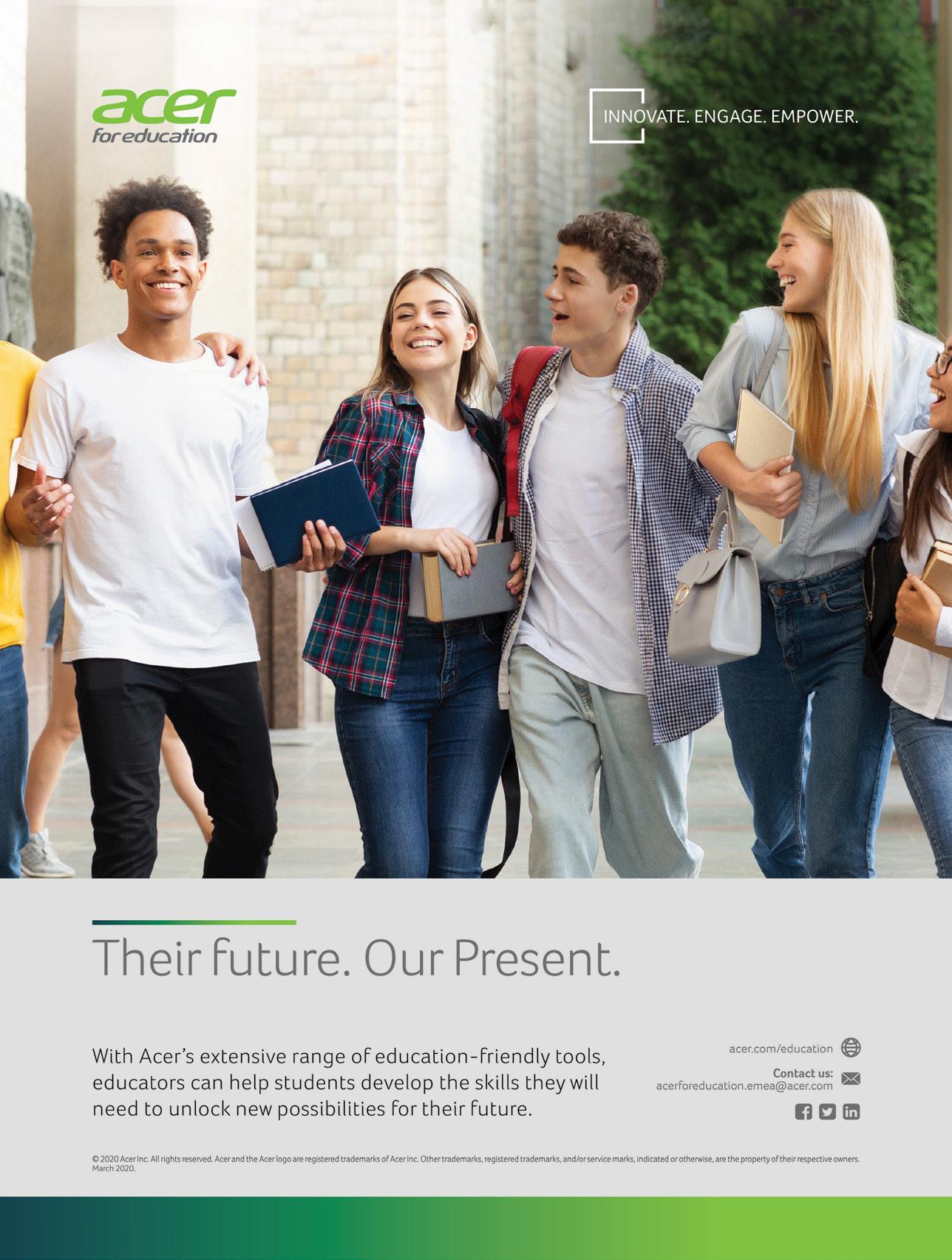
Website:
Website:https://www.aw.org/ https://www.nordangliaeducation.com/
Location: Washington, USA
Keyperson: Rex Bates, Director of International Advancement
About the School: Founded in 1884, Annie Wright Schools are nestled in the beautiful North End neighbourhood of Tacoma, Washington. It offers rich, thoughtful and internationally-recognized programs that welcome students from around the world.

Location: Versoix, Switzerland
Keyperson: Pauline Nord, Director General
About the School: Collège du Léman is a Swiss boarding and day school, for boys and girls from 2 to 18 years old, currently based in Versoix, canton of Geneva, Switzerland.


Website: https://www.ellesmere.com/
Location: Ellesmere, England
Location: Acton Burnell, England
Keyperson: Dr Michael Truss, Principal
About the School: Concord College is a highly academic independent international school in England for day and boarding students. It welcomes students from all over the world and the local area into its vibrant and varied community.
Website: Website:
https://concordcollegeuk.com/ https://idyllwildarts.org/
Keyperson: Stephen Mullock. Deputy Head (External Relations)
About the School: Settled in the beautiful Shropshire countryside since 1884, Ellesmere College is an independent 7-18 coeducational day, weekly and full boarding school providing outstanding educational and personal success for all students – whether local, regional or international.

Idyllwild Arts Academy
Location: California, USA
Keyperson: Tara Sechrest, Vice President, Enrollment Management & Strategic Partnerships
About the School: The Idyllwild Arts Academy provides pre-professional training in the arts and a comprehensive college preparatory curriculum to a diverse student body of gifted young artists from all over the world.


Website: https://www.interlochen.org/
Location: Michigan, USA
Keyperson: Camille Colatosti, Provost
About the School: A true artist’s retreat, Interlochen Arts Academy invites grades 9-12 and postgraduate students for arts education programs designed to hone their skills and nurture their humanity.

https://www.smgs.nsw.edu.au/
Location: Seogwipo, South Korea
Keyperson: Lynne Oldfield, Principal
About the School: Incepted in 2011, North London Collegiate School Jeju (NLCS Jeju) is a day and boarding school delivering exceptional British education to Koreans and students worldwide.

Location: Jindabyne, Australia
Keyperson: Dr Andrew Bell, Principal
About the School: SMGS offers a wellrounded, academically enriched education with a strong pastoral care program, whereby each student is known personally by teachers, who prepare students for their vocation and life in the real world.
Website: Website: Website:
Website: https://www.nlcsjeju.co.kr/ https://www.gow.org/ https://www.linsly.org/
Location: New York, USA
Keyperson: Meghan Mileham, Assistant Director of Admissions
About the School: The Gow School is a coed college-prep boarding and day school for students, grades 6-12, with dyslexia and similar language-based learning disabilities in New York.

Location: West Virginia, USA
Keyperson: Justin Zimmerman, Head of School
About the School: Located in Wheeling, West Virginia, The Linsly School is a private, independent day and boarding school for students in grades 5 through 12.
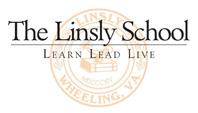










Founded in Tacoma, Washington, Annie Wright Schools (AWS) is a private International Baccalaureate World School serving students from age three through high school. It is amongst the few elite schools in the US and the only in Washington State to offer the continuum of IB programs at every level.
Most recently, AWS added another feather to its cap by becoming the #1 Boarding School and #1 K-12 Private School in Washington State by Niche. Owing to its rich history, internationally-recognized programs, and world-class facilities, AWS is the preferred education destination for international students.

Founded in 1884, Annie Wright Schools are nestled in the beautiful North End neighborhood of Tacoma, Washington, offering rich, thoughtful and internationally-recognized programs that welcome students from around the world
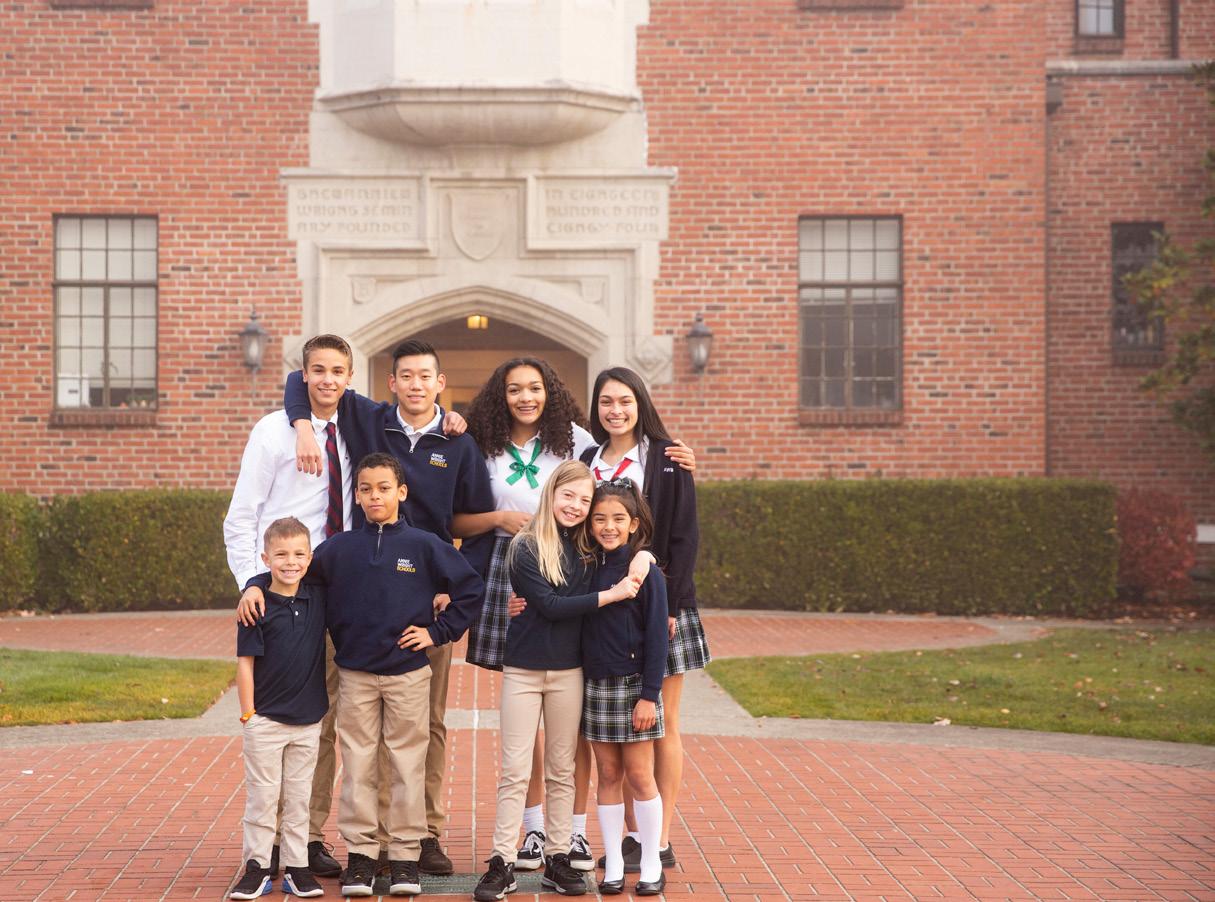
In 1884, AWS was founded by Charles Barstow Wright, a Philadelphia resident whose business brought him to Tacoma. He called Tacoma “the City of Destiny” and wanted to see it grow and flourish. Another pioneer, Right Reverend John Adams Paddock who had moved to New Tacoma in 1881 sought Wright’s assistance to build a school which would “make possible Christian education for the rising generation of daughters of the pioneers.” Wright agreed and outlined his vision for the school. Paddock named the school in honor of Wright’s daughter,

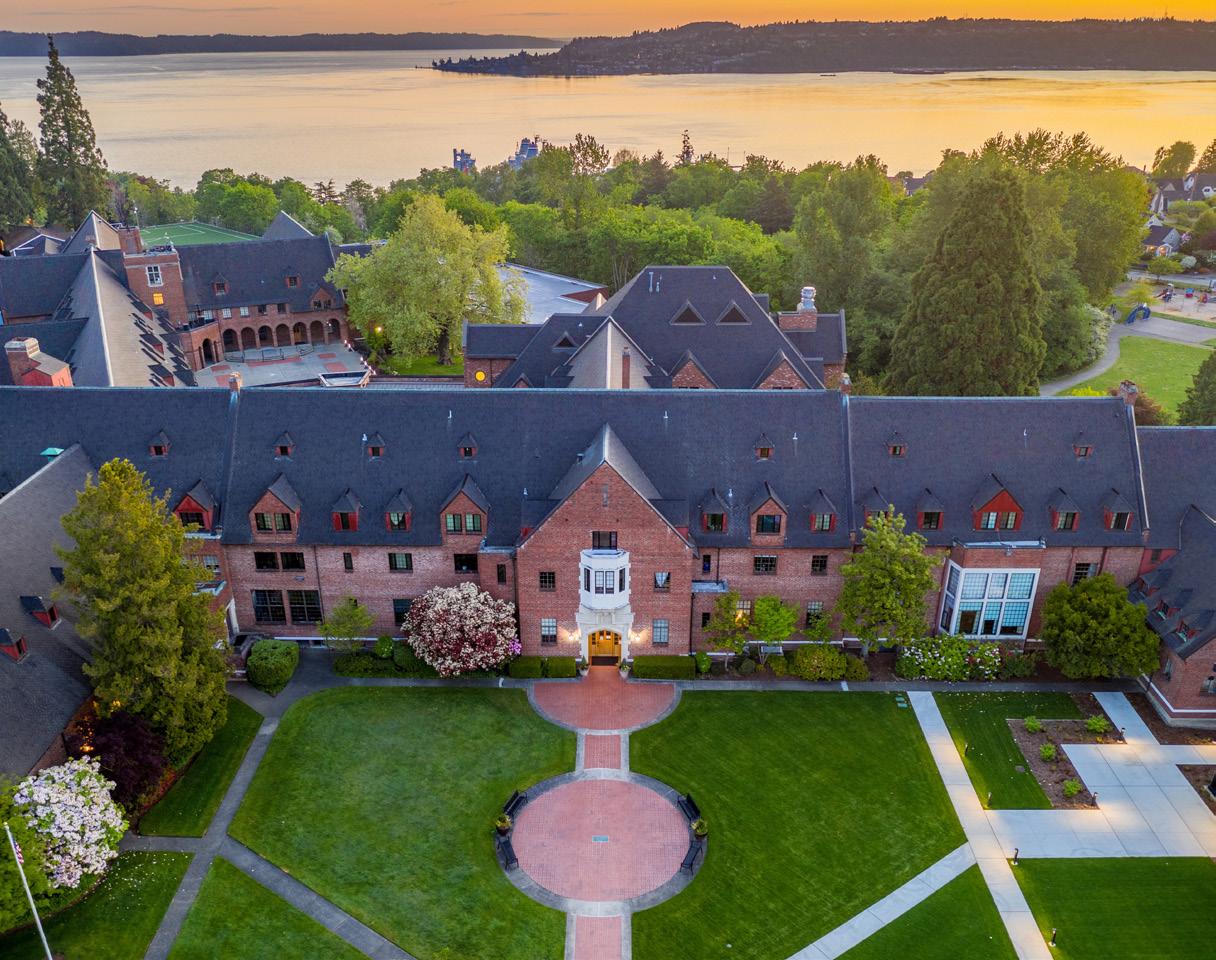
Rex Bates joined Annie Wright Schools in 2008, although his association with the school as a parent, trustee, and Board Chair dates back almost 25 years. Rex’s first career was in independent education as a history teacher, dorm parent, and coach at Shattuck St. Mary’s School. He followed that with almost 30 years in multiple leadership positions at State Farm Insurance Company.
Annie Wright Schools nurture responsible, global citizenry in a pluralistic and rapidly changing world by encouraging and being willing to respectfully engage in courageous conversations
Annie, and thereon, the journey of Annie Wright Seminary (now known as AWS) began.
As years passed, Annie Wright Seminary underwent numerous transformations; from an only girls’ school to a co-ed school. In 2011, the

school was renamed Annie Wright Schools, consisting of a distinct combination of coed and single-gender programs. The same year, AWS’ first batch of students earned the IB diploma. The primary and middle years programs were later adopted by lower and middle schools, respectively.

However, through all these years, AWS has successfully maintained its hallmark for
delivering exceptional academic programs that challenge students to reach their full intellectual potential.
The campus of AWS is spread across 13 acres, nestling historic and newly constructed buildings. The institution offers state-of-the-art facilities with smart and spacious classrooms,
fully-equipped science laboratories, a large indoor pool, gyms, a 350-seat proscenium style theater, a modern library and tech lab, a beautiful chapel, a dining hall with healthy and child-centered catering services, a medical facility, and a lot more.
All AWS teachers are trained in IB and bring a wealth of knowledge and experience to facilitate
Through activities, community service, student council, outdoor learning opportunities, Annie Wright Schools’ signature journeys program and more, teachers challenge students to explore their full potential

a successful learning journey. They have and continue to inspire and support hundreds of students from their early years to university.
Moreover, AWS invests in its staff by offering them a range of professional development opportunities such as grant funding, staff endeavors, and more.
From adventure to awareness, experiential learning is a highlight of the Annie Wright Middle School experience
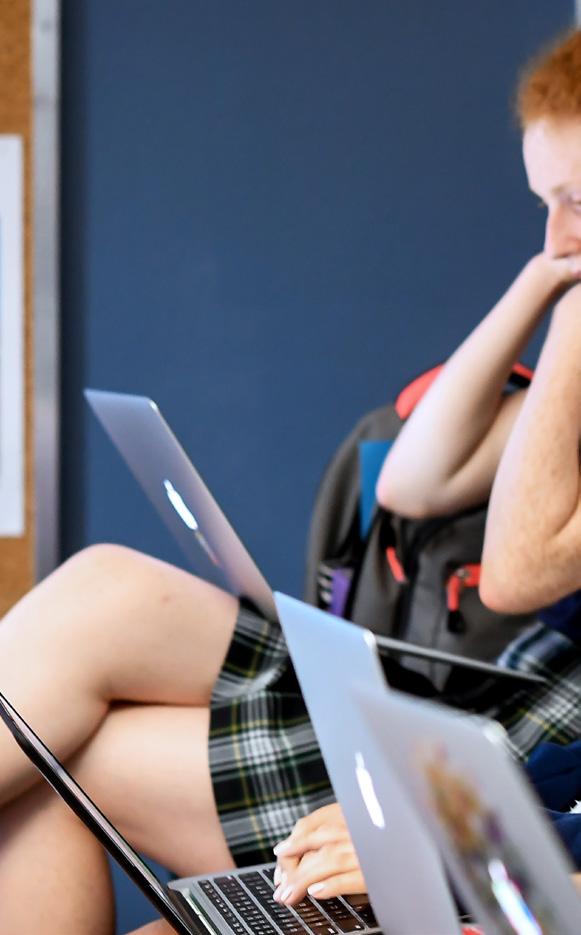
At AWS, the average student to teacher ratio is 7: 1. The school offers differentiated instruction within the classrooms with additional individualized learning support for students.

In every division, dedicated learning support specialists assist students in all subjects, especially math, during and after school.

“Our IB programming emphasizes student inquiry, intellectual risk-taking, and global-mindedness,”
shares Mr. Rex Bates, Director of International Advancement at AWS. Through a unique and challenging education, AWS students perform well academically and develop strong social and emotional characteristics.
Moreover, AWS strikes the right chord in encouraging students to pursue their unique interests and passions beyond the classroom.
From study abroad and cultural exchange programs to a wealth of arts, athletics, and social opportunities, students have a wide range of options at AWS. Students become more culturally aware and can engage with others in an increasingly globalized, rapidly changing world. As a result, they become the ideal candidates for international
universities and colleges with the necessary knowledge, skills, and disposition to make a successful career.

“At AWS, we pride ourselves on ‘knowing’ every student, and establishing rapport with families is
Going beyond the regular academic classes, clubs at Annie Wright Schools allow students to delve into their passions or explore new ones
important in that effort,” reveals Mr. Bates.
AWS offers numerous parent engagement and social opportunities for families to get to know each other and their student’s teachers and administrators. Likewise, the faculty regularly updates parents about their child’s progress at every step of their learning journey. The institution also provides
many volunteering opportunities for events, community service projects, etc.
AWS is a certified International Baccalaureate (IB) World School, with IB curricula offered throughout the schools. It is also a proud member of the Northwest Association of
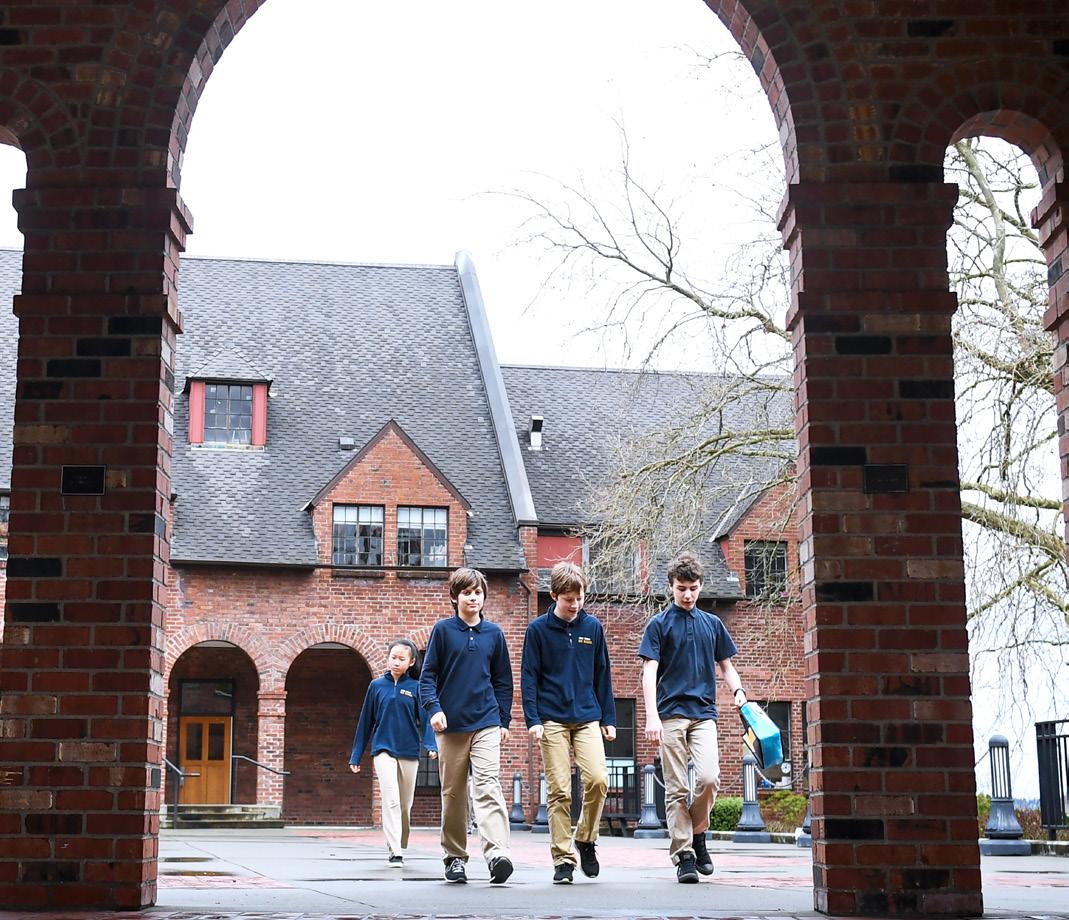
Independent Schools (NWAIS), the National Association of Independent Schools (NAIS), the National Coalition of Girls Schools (NCGS), the International Boys Schools Coalition (IBSC), the Association of Boarding Schools (TABS), and the Educational Records Bureau (ERB).
In the wake of the COVID-19 pandemic, the AWS community was well-equipped with modern technology infrastructure, training, and resources to offer a rigorous, mostly synchronous collegepreparatory IB curriculum despite the campus closure. In addition, numerous other efforts were

made by AWS faculty to keep the students engaged and motivated during the hybrid learning mode.
“We are immensely proud of our entire student body’s ability to rise to the challenge and to ensure we could continue forward as a global, yet inclusive, academic community,” states Mr. Bates.
Currently, the AWS community is leading efforts to bring the 2021-2024 strategic plan to life.
Going ahead, the school will continue to challenge its student community to become the best versions of themselves and develop a broad perspective on the world. By honoring its past and embracing its modern identity, AWS looks forward to a luminous future.

In 1960, two Swiss educators, Francis and Inge Clivaz, identified the need for an international school offering quality education in Versoix, Geneva. They saw their city becoming a home ground for multinational organizations and people with different cultures and backgrounds. Geneva, however, lacked an academic institution

offering international education. In May 1960, Collège du Léman (CDL) was incepted with a mission statement by its Founder, Francis Clivaz, “To educate and teach in a spirit of openness and tolerance so that its students become citizens and leaders of a world respectful of differences.”
In 2020, CDL celebrated its 60th anniversary. Both Inge & Francis shared a special message on occasion,
SHAPING GENERATIONS THAT HARNESS DIFFERENCES TO CHANGE OUR WORLD FOR THE BETTER
COLLÈGE DU LÉMAN
2022

Collège Du Léman was created to meet the needs of a new world, in which ambition and a global perspective can take you to amazing placesPauline Nord Director General

stating, “Since the first day of CDL, we have lived together in perfect harmony. We learned from our differences and respected them!”
Today, the school’s baton is passed onto its teachers and students to continue effective teaching and quality learning with the promise of shaping generations that harness differences, changing our world for the better.
Located between the city of Geneva and the countryside, the school offers a green vibrant campus with warm and welcoming surroundings.
Students aged 2-18 years are offered multiple choices in the curriculum – enabling them to follow a personalised learning path. Its RISE
Pauline Nord, Director General, has been with CDL since 1987 and has been instrumental in helping to drive the school’s success
values of Respect, Internationalism, Team Spirit, and Excellence unite a community of over 110 nationalities among students and 35 nationalities among teachers. There are three streams (Bilingual, Anglophone, and Francophone) and the possibility of completing various diplomas in French or English: Swiss Maturité, French Baccalauréat, International Baccalaureate, American High School Diploma, and IGCSE. Its unique collaborations with MIT, UNICEF, and the Julliard School, further open doors to numerous career paths for its students. Moreover, the school’s infrastructure includes outdoor sports facilities for basketball, and football, a well-stocked library, drama, dance, arts & technology spaces, and boarding facilities. Collège du Léman creates a diverse and inclusive learning community for each student to discover and develop their strengths.

CDL takes a personalised route to create engaging learning experiences customised to each student’s strengths, needs, and interests. In turn, students can express their curiosity and develop innovative ideas through critical thinking. “As each student is unique and has different needs, the breadth of our options in terms of streams and diplomas allows each student to follow the path that is best suited for him/her and have an excellent success rate on exams,” asserts Pauline Nord, Director General, Collège du Léman. To support students to develop their strengths and passions beyond the classroom, the Geneva-based school offers over 100 extracurricular activities. During their holidays, students can also enroll in various camps and participate in activities as per their interests.
Pauline Nord further adds that students get the opportunity to participate in global
competitions in multiple fields – sciences, arts, writing, music, etc., allowing them to challenge themselves and learn from students from around the world. This is an added advantage of being a part of Nord Anglia Education, a family of over 80 schools around the world.
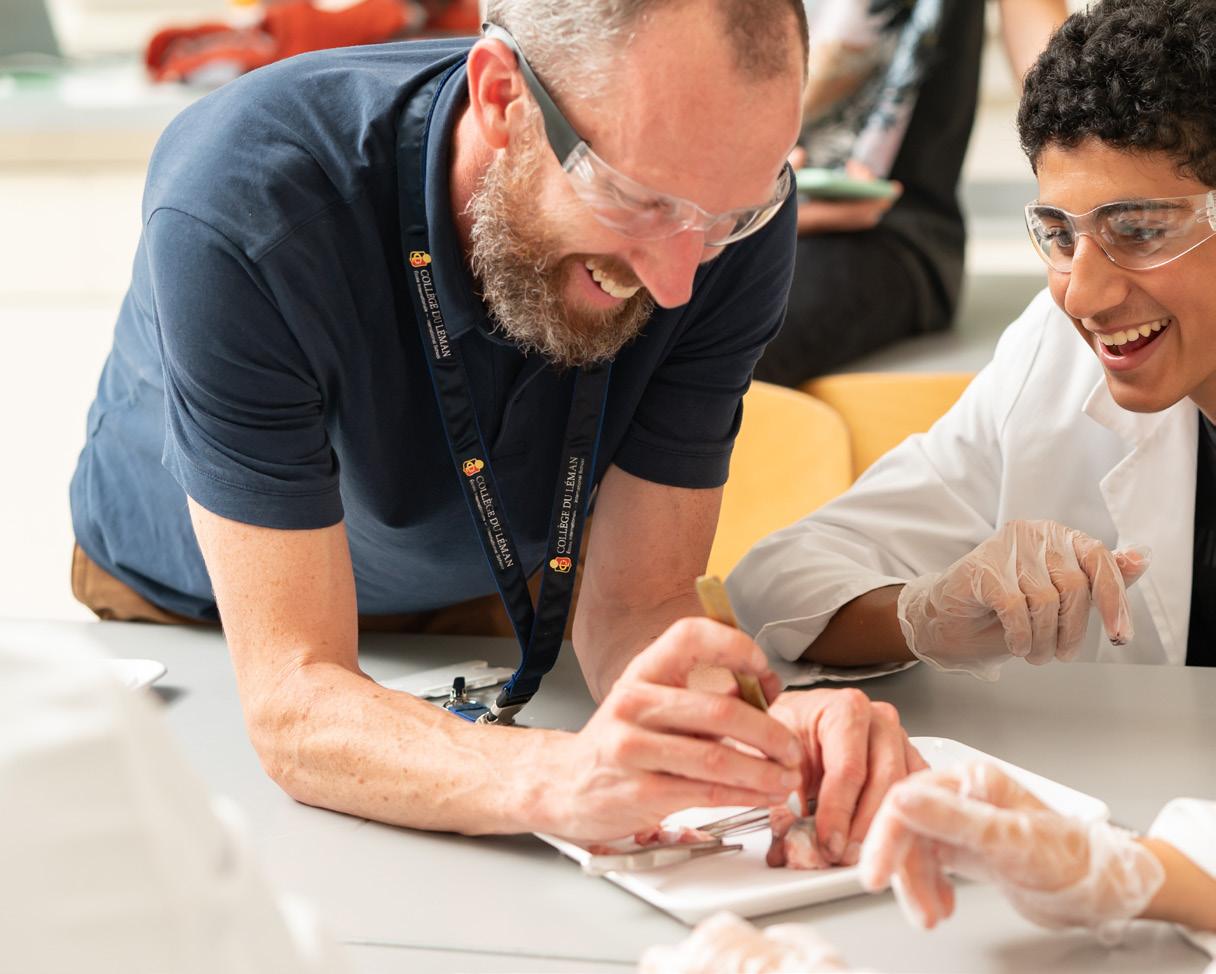
Justin Usher, Director of Boarding is proud that “Our school offers a structured, warm, diverse and down-to-earth environment in which students can grow into confident young adults. Our team is genuinely caring and always committed to
providing boarding students with a once-in-alifetime experience that will shape them for life”.
Collège du Léman welcomes boarding students from 8 years old. The boarding community is a big family, in which students from all over the world can exchange and get to know each other. The richness in their community is an integral part of their core values. They celebrate diversity through culinary events and enjoy one international meal a week cooked by a Chef, or through special events such as the ‘Internationalism Week’ with activities allowing students to showcase their cultural backgrounds and learn from each other.
The House Parents care for the day-today needs of each student. Much more than caregivers, they are mentors, counselors and friends, available around the clock for any need, be it emotional, academic or practical. Wellbeing indeed has a central place in the school’s boarding philosophy. And because parents are at the heart of their child’s education, they learn through the weekly wellbeing bulletin about their children’s emotional balance, exercise and sleeping habits, as well as their joy and motivation.
To complete this unique experience, the school offers more than 100 extracurricular activities, regular weekend trips and holiday excursions. Students can follow existing hobbies or explore new adventures. From sailing to mountain activities, arts & crafts or photography courses - they propose a variety of activities all year long. These experiences are central to boarding life, and allow students to learn new skills while creating memories that will last a lifetime.
With a fully personalized approach to education, Collège du Léman achieves outstanding results. Over the last 3 years, the school had a 99% pass rate across the 5 diplomas, and 100% in 2022.
The excellence of the education provided allows students to be accepted into the best universities in the world including Imperial College London (Biochem), University College London (Law), U Penn - Wharton Business School, St. Andrews University, University of Glasgow (Medicine), Ecole Polytechnique Fédérale de Lausanne (EPFL), University of Geneva (UNIGE), Ecole Hôtelière de Lausanne (EHL), HEC Montréal, King’s College, to name a few.

CDL provides a choice of the International Baccalaureate, Swiss Maturité, French Baccalauréat and American diplomas, allowing students to select precisely the right course of study for them
Over the years, the quality of CDL’s approach has been evaluated and certified by major international and Swiss accreditation bodies. To offer the International Baccalaureate (IB) programmes, the school has completed an authorisation process conducted by the IB Organization (IBO). The school is also a member of the Council of International Schools, a community of members committed to providing highquality international education.
Furthermore, Collège du Léman is a member of the New England Association of Schools and Colleges (NEASC), which evaluates and guarantees quality education for all students, as well as a member of the Groupement des écoles suisses qui préparent au Baccalauréat français (GESBF), which is the Swiss interlocutor of the Académie de Grenoble, the competent authority for registration for the French Baccalauréat. It is also one of the 11 boarding schools approved by Swiss Learning. Finally, as a member of the Nord Anglia Education family of schools, the school is subject to strict quality controls and standards.
The school has a caring community of talented and experienced faculty and staff members. Their role is to integrate students from diverse nationalities and backgrounds and to ensure a smooth start to their studies.
At the same time, the school ensures to offer a world full of opportunities to its academic staff to continue their professional development journey. As a part of the Nord Anglia Education family of schools, CDL’s teachers are given
access to upskill and seek advanced training on technologies and modern pedagogies.
One of the finest educators and torchbearers of CDL is Pauline Nord, who has been the Director-General of the school since 2019. She is also the first female Director and has been with CDL since 1987. During her time at the school, Pauline Nord has held several senior positions, including the Middle School Math Coordinator, the Director of Primary & Preschool, and, more recently, the Academic Director.
“The most important thing for us throughout this period was to ensure a strong link between the students and the teachers, a quality pedagogical continuity, and to place the wellbeing of the students at the heart of the educational strategy,” mentions Pauline Nord. Hence, much like other global academic institutions, CDL also implemented distance learning, efficiently managed health constraints, and offered psychological support to its students.
To achieve these initiatives, the Geneva-based school leveraged digital technology to provide distance learning. This allowed the students to stay in touch with their teachers, friends, and the campus. Following Covid and the accelerated digitisation throughout the globe, the school prepares its students for the future by further developing learning beyond its walls and tailoring learning opportunities to inspire students to unlock and grow their strengths. Collège du Léman aims to provide an excellent academic foundation and equip its students with 21st-century skills—that will allow them to reveal their best selves and change the world for the better.
AlonYaminisCEOandco-founderofCopyleaks, acloud-enabled,AI-poweredplagiarismdetection platformthathelpsacademicinstitutions,students, publishers,IPlawyers,businesses,andmoretrack content,ensuringitsoriginality.

Worldwide we are still discovering the ripple effects of the COVID-19 pandemic. There is no doubt that what lays before us is a world transformed. But, when it comes to the world of education, we must ask ourselves, what does that mean?
We now have a generation of students who missed over a year of in-class experience. As for the educators? They are busy filling the gaps left by that year or more of remote learning while trying to push forward with the curriculum.
What behaviors or patterns rose out of that time, and how do we address them? Specifically, what can we learn from the rise of plagiarism among students during the pandemic and its aftermath?
A study by Copyleaks compared plagiarism similarity scores before and during the pandemic showed increased plagiarism throughout student assignments globally. Specifically, it uncovered that more paraphrasing and text replacement appeared in student assignments during the pandemic than in 2019. It’s equally important
Plagiarism software has often been seen as a “Gotcha!” tool against students. Too often, there are stories about students feeling shamed because of accidental plagiarism incidents that did not lead to further discussions or learning opportunities
to note that the findings were unanimous among countries worldwide, including the United States, India, Brazil, and more.
A separate study by Copyleaks analyzed more than 1,000 student assignments submitted through a plagiarism checker after March 2020, when most schools moved to remote learning. That study identified that the average similarity score of 35.1% went up to 49.6% compared to pre-COVID assignments of the exact nature.
It would be easy to assume that with the move to remote learning, the rise in plagiarism was simply students trying to get out of the work. Or, because they didn’t have teachers inperson to monitor them, they did not put in their total effort. Yet to assume such a thing would be missing the bigger picture and an even more significant opportunity.
Plagiarism software has often been seen as a “Gotcha!” tool against students. Too often, there are stories about students feeling shamed because of accidental plagiarism incidents that did not lead to further discussions or learning opportunities.
That’s why the narrative around plagiarism platforms needs to change, and never more so than following the COVID-19 pandemic. These platforms must be used to uphold educational integrity while providing a means for educators to fill potential gaps in their students’ education. It can be a moment of great learning about how to write original work, developing critical thinking skills, citing sources correctly, the various forms in which plagiarism can appear, and more.
In this time of social media and endless scrolls of information, it’s incredibly easy to get scooped up in the assumption that most, if not all, students today are incredibly tech savvy. But to do so is putting students at a disadvantage.
In this time of social media and endless scrolls of information, it’s incredibly easy to get scooped up in the assumption that most, if not all, students today are incredibly tech savvy. But to do so is putting students at a disadvantage
Alongside the rise of plagiarism during the pandemic, another glaring fact came with it: the lack of internet access for many students worldwide. UNICEF released a report in November of 2020 revealing that nearly twothirds of the world’s school-age children do not have access to the internet. Consider for a moment the child with no regular internet access who begins remote learning, either by using the internet at the local library or a nearby hotspot, coming to it with no complete understanding that cutting and pasting information for a report is considered plagiarism. How do they know if they never learned?
Does this apply to every situation?
Unfortunately, no. There will always be cheaters. However, those cases are fewer and far between.
This brings us back to the gap mentioned earlier that the pandemic left for many students and educators. According to a study done by McKinsey & Company regarding the effects of the pandemic, when comparing the in-school assessment scores of 1.6 million elementary school children across 40 states in 2021, they found that “Students testing in 2021 were about ten points behind in math and nine points behind in reading, compared with matched students in previous years.” That says a lot.
We know that there is unfinished learning from the pandemic. We know that plagiarism has increased across the board. We know that educational integrity has slipped, period. In the wake of such a life-changing event for the world of education, how do we go about maintaining, or in some cases, restoring, educational integrity?
The answer? By supporting one another, together.
Educators were faced with an almost impossible situation to keep the education of their students in motion while balancing life in a pandemic. None of us knew what COVID-19 truly was capable of. It’s understandable that many of us were scared in the shadow of such uncertainty. But when looking into the faces of young students through a screen, teachers had to maintain a sense of hope and strength. That’s not easy. For that, every teacher out there needs an endless supply of support in every way. From the day-to-day interactions they have with students in their classrooms to the technology they are provided to supplement the curriculum.
Students not only need support, but patience and understanding, even a year after returning to classrooms. Everyone did the best they could with a nearly insurmountable task. Yet as the studies show us, there is no denying that COVID skewered a year or more of education. Some things inevitably fell through the cracks while teachers worked exhaustively to keep the train moving while laying tracks simultaneously. There is just too great a possibility that most students missed out on pivotal pieces of education. It’s essential for all of us not to assume a student knows, for example, the rules of citation or how to format a paper in MLA format. Patience and understanding will get them back on track.
As plagiarism tools become increasingly advanced, we have the opportunity not to use those tools as a source of shame and fear among students. Instead, it’s an opportunity to learn, fill in the gap, finish what was left unfinished, and rebuild educational integrity one assignment at a time, together.

Integrating art within our lives plays a key role in enhancing the human experience. Art schools equip individuals with the right tools they need to hone their sheer talent and transform their love for art into a career while bringing about a positive change in today’s world. Nonetheless, while we acknowledge the transformative impact art may have on our lives, its place within the education system has become increasingly weak.
It is imperative to find the right institution that empowers its students to achieve their true artistic potential by implementing creativity across disciplines and is equipped with the required resources to do so.
Revolutionizing lives since 1946 is the forward-thinking and well-renowned art institution, Idyllwild Arts Academy, with its state-of-the-art infrastructure, skilled faculty, and continually evolving curricula. The academy offers intensive, specialized arts training and challenging
The Idyllwild Arts Academy is a premier and internationally-acclaimed residential arts high school, which provides preprofessional training in the arts and a comprehensive college preparatory curriculum to a diverse student body of gifted young artists

college-prep academics to talented young artists from around the world. The academy’s Arts Majors include Music, Visual Arts, Theatre, Creative Writing, Dance, Fashion Design, Film & Digital Media, and Interdisciplinary Arts. Outside the regular school year, Idyllwild Arts offers summer workshops, including Jazz in the Pines, ESL, Native American Arts, and a full menu of Arts Intensives. Additionally, the academy is accredited by the California Association
Idyllwild Arts Academy’s 300 students hail from more than 30 countries and pursue artistic excellence in Music, Theatre, Dance, Visual Art, Creative Writing, Film & Digital Media, InterArts, and
of Independent Schools and the Western Association of Schools and Colleges. It belongs to the National Association of Independent Schools, The Association of Boarding Schools, and the Arts Schools Network. Tara Sechrest, Vice President, Enrollment Management & Strategic Partnerships, Idyllwild Arts Academy, tells us, “Idyllwild Arts was founded as a respite for creators to come together from around the

world. The vision of our founders was that this creative collective would promote intercultural understanding and peace while re-envisioning the artist’s responsibility to society. Idyllwild Arts believes that art is the greatest teacher of humanity. And the practice of creativity, no matter the ultimate expression, hones each individual’s desire and ability to craft global change.”
The academy picturesquely sits a mile above sea level in the San Jacinto Mountains, two hours from Los Angeles and San Diego and an hour from Palm Springs, beckoning inspiration. The institution boasts cutting-edge facilities that enhance the student’s experience of artistic discovery, productivity, and creativity. The campus comprises an IAF Theatre that can accommodate 300 individuals for music, dance,
and theatre performances, an advanced Bruce Ryan Sound Stage for film productions, a top-ofthe-line professional film editing bay, Fisher and Lewitzky professional Dance Studios, Kennedy Kiln Center, which is a fully-functioning ceramics


Graduates of Idyllwild Arts Academy currently excel in every professional field of the arts including Broadway theatre, primetime television, classical and jazz music, motion pictures, graphic design, photography and more


kiln studio, Parks Exhibition Art Gallery for student and visiting artist exhibitions, Krone Museum with historic photos and archives, and Native American art, and private soundproofed music rehearsal studios.
In tandem with this, the new William M. Lowman Concert Hall, designed by award-
winning architect Whitney Sander of Los Angeles, is the latest addition to the institution’s portfolio of offerings. Situated in the heart of the Idyllwild Arts Academy campus, the massive concert hall is approximately eight thousand square feet and seats 298 audience members. The hall includes a lobby, restrooms, a green room, mechanical space, and musical instrument storage space. The performance stage is 60 percent larger than the IAF Theatre stage in the Bowman Arts Center
(1,820 sq. ft. compared to the current 1,100 sq. ft.) and thus able to simultaneously accommodate a full symphony orchestra and chorus, as well as jazz concerts and chamber music performances.
Acoustically engineered by ARUP North America and world-famous for its design of the Sydney Opera House, the hall is sheathed in 67 thousand pounds of rusted corten steel panels that blend with the cedar siding of surrounding campus buildings. The jagged topography of the steel evokes the mountain landscape of Idyllwild, while the silhouette of the building represents an artist’s conception of the musical score “Xtal” by Richard James. In all stages of development, fine acoustics have been the top priority.
The project includes a professional landscape plan, designed to be sustainable and eco-friendly. The design features indigenous, drought-resistant native plantings, an oak grove, and solar-powered illuminated walkways leading to outdoor areas that serve as a central campus quad and gathering space for the school community.
Employing highly skilled and experienced teachers is another critical factor in shaping a student’s life. At Idyllwild Arts, students learn from a distinguished faculty of working professional artists. Moreover, maintaining a strong teacher-student ratio helps the teacher focus on each student better, thus deriving better results. Keeping this in mind, the studentteacher ratio is 3:1 at Idyllwild Arts. Resource is a dedicated class period designed to provide individual support for students with documented learning differences. Resource is staffed by the Director of Resource and meets in the Krone Library, so students have dedicated time to work in a quiet space, and also receive 1-on-1 support and check-ins with the Director of Resource.
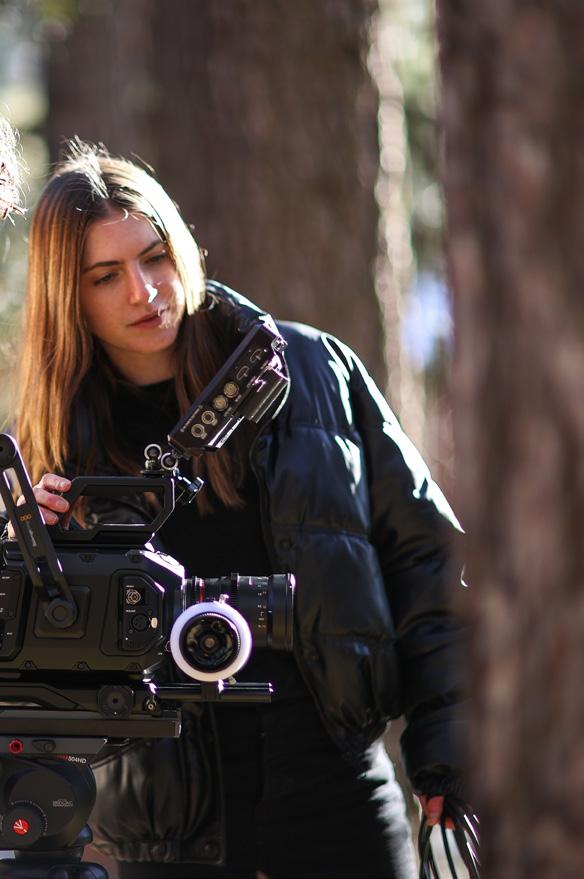
Students in Resource receive support and instruction in time-management, communication, and organization skills, and are coached in selfadvocacy. Resource also provides a quiet venue for extended-time testing. While Resource is not required for students with learning differences, IAA strongly encourages such students to enroll in Resource as additional support. A student may gain permission to enroll in Resource through the Assistant Head of School, who needs to receive documentation of the learning difference before enrolling a student in Resource. Students requiring classroom accommodations also need to submit documentation to the Assistant Head of School, whether or not they would like to be enrolled in Resource.

Parental involvement in a student’s life is another aspect to which the academy pays high regard. Parents are offered regular email communications by the advisor and are invited to respond if they have any concerns. In conjunction with this, parents are provided with uninterrupted access to Blackbaud’s education software.

Idyllwild offers a peaceful and remote setting from urban distractions, although it is located just 2 hours by car from Los Angeles or San Diego

Parents can check on their child’s progress in any class at any time, and the Blackbaud software enables them to communicate their concerns (or satisfaction) to the relevant teacher.
Graduates of Idyllwild Arts excel in every professional arts discipline, including Broadway theatre, primetime television, classical and jazz music, motion pictures, graphic design, dance, and more. Several students have gone on to attain global recognition and have built a strong reputation of their own.
Tara recounts some of the notable achievements by one of the top ’10 innovators of 2013′, according to Architectural Digest AD Profile, Elora Hardy. She commenced her career as a designer, working for Donna Karan in New York. Her prints have walked the world’s runways. She then left the world of glamor to return to Bali and form a sustainable construction company where she builds stunning homes out of bamboo that look inspired by Hollywood movie sets.
Yet another shining alumnus from the Idyllwild Arts Academy is Clay Alexander, an inventor and serial entrepreneur holding over a hundred patents worldwide. In his tenure, he has established three renowned organizations, one of where he created the world’s first LED track light. Through his third organization, he founded a design-led temperature control brand which is creating a new category of consumer products and is on the path to becoming the next global household brand.
Other stars fondly remembered are Shepard Fairey - American contemporary artist, activist, and founder of OBEY Clothing, musician Casey
Abrams, Tony-nominated actress Marin Ireland and New York’s Philharmonic principal oboist, Liang Wang.
The academy also extends internships at Palm Springs Fashion Week, Spring and Summer fashion industry internships in Palm Springs and New York, and collaborates with a charitable organization to apply design skills to helping others. Tara adds, “Seven of our student films were announced as an official selection in the prestigious All American High School Film Festival. Two of the students nominated graduated in May (Isabella Bastos and Athena Stuebe). Everyone else nominated is a returning student.”
Over the years, the academy has continually geared itself up for the inevitable change encountered in this sector. As the pandemic hit us and evolved, so did the academy and its response to this outbreak. As COVID-19 posed severe challenges for boarding schools worldwide, Idyllwild Arts Academy’s administration anticipated the difficulties. It became one of the first schools in California’s sprawling Riverside County to send its students home and move to an all-remote program in the spring of 2020.
When students began returning to campus in October of that year, the school was prepared with compulsory masking, frequent mandatory testing, takeout dining to prevent large gatherings in the dining hall, an off-campus quarantine facility for students who tested positive for the virus, and more. Vaccinations were never mandated, but they were strongly encouraged, and nearly all students and employees accepted vaccination. The school did not let its guard down throughout the 2020-21 and 2021-22 school years. Tara elucidates, “As a result, only a handful of students and employees contracted the virus in 2020-21. In 2021-22 the numbers were slightly higher, but no one who contracted the virus became seriously ill, and there were no COVID-related hospitalizations. The Idyllwild Arts Academy community has a right to be proud of its response to the pandemic.”
Throughout the pandemic, the institution continued to run its normal performance schedule, and students participated in hands-on art classes.
In the face of adversity and constant change, the academy envisions to continue nurturing young talent and helping its students carve a fulfilling career path.

Idyllwild Arts Academy’s graduation requirements prepare students for any institution of higher learning of their choice
 SCHOOLS
SCHOOLS
Aspecial and intangible magic transpires on the beautiful campus of Interlochen Arts Academy, nestled between two pristine lakes and surrounded by quiet pines in northwest Michigan. A true artist’s retreat, Interlochen Arts Academy invites grades 9-12 and postgraduate students for arts education programs designed
to hone their skills and nurture their humanity.
The depth and breadth of their offerings is unmatched, and the community transcends backgrounds and beliefs, borders and barriers.
“At Interlochen, generations of artists and arts enthusiasts are united through the universal language of the arts,” says Camille Colatosti, Provost at Interlochen Center for the Arts.

Academy is the destination for young artists where they transform passion and potential into purpose
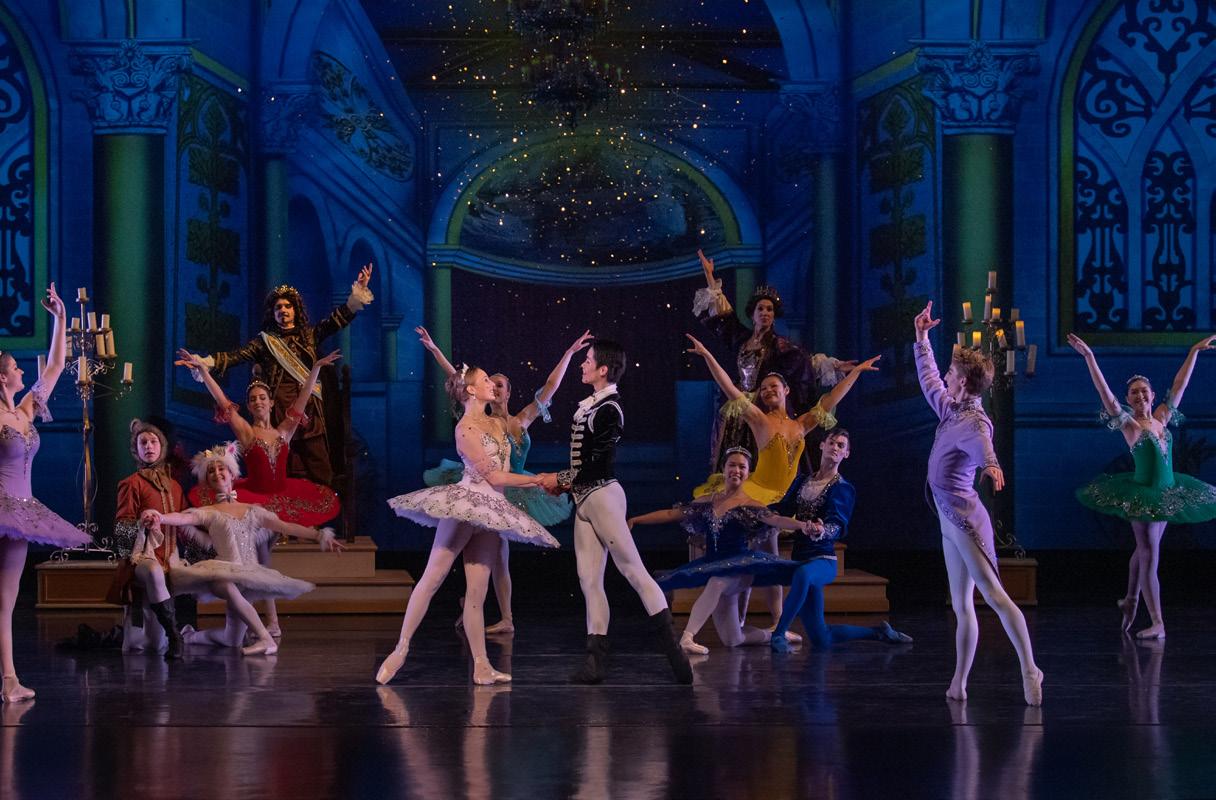

In 1962, Interlochen Arts Academy opened its doors as the United States’ first independent boarding school for the arts, and over the years has cemented their standing as the top U.S. boarding arts high school. Students pursue pre-professional training in their chosen artistic discipline alongside a robust academic curriculum, preparing them to excel in the arts and beyond.
“Our academic curriculum merges seamlessly with our rigorous artistic training.
Academic instructors encourage students to discover the connections between creativity and intellect by incorporating the arts into their lessons. Faculty in all fields collaborate to help students maintain a healthy balance,” explains Colatosti.
Interlochen Arts Academy students major in one of seven arts disciplines:
The Creative Writing major nurtures young writers’ talent, stimulates their imagination, and broadens their command of the writer’s craft. Fiction, poetry, and nonfiction workshops form the core of the program, and students also engage in a variety of electives. Proficiency in a broad range of genres builds versatility and control, preparing students for the rigors of collegelevel work as well as publication. Through individualized mentorship and intensive workshops, students develop an awareness of their strengths and challenges, while expanding their patience and self-discipline. Students leave the program with a portfolio of carefully revised work in a variety of genres.

Students major in one of seven arts disciplines: creative writing, dance, film & new media, interdisciplinary arts, music, theatre, and visual arts
The Dance major offers pre-professional training to instill the discipline and skill necessary to pursue dance at premier higher education programs and as a career. Academy dancers study both classical and contemporary dance. Students spend three to five hours per day in classes such as classical ballet technique, pointe, pas de deux, character dance, contemporary, jazz, hip-hop, and other genres. The program places a strong emphasis on rehearsing for public performances.
Academy dancers have regular opportunities to audition for college and university programs, professional companies, and summer intensives.
The Dance Division consults with academic faculty and support services to provide for the unique educational, emotional, and physical needs of young dancers. Specialists in nutritional counseling, dance medicine, and related arts fields work closely with dance faculty and students to encourage healthy and safe practices.
In the Film & New Media major, students learn the art and craft of storytelling and multimedia production through critical studies and hands-on experience. The curriculum guides students through progressive, interdisciplinary, and collaborative courses in digital video, screenwriting, film history, and related arts. Students also have the

opportunity to explore game design, animation, and new media creation. Screenwriting workshops help students develop storytelling skills and learn the narrative structure of a film. Production classes explore the visual and aural aspects of filmmaking, such as cinematography, lighting, music, sound, directing, and editing. Electives from other arts majors expand students’ appreciation of the components that make up a film. Students graduate with strong experience in writing, producing, directing, and editing their own projects.
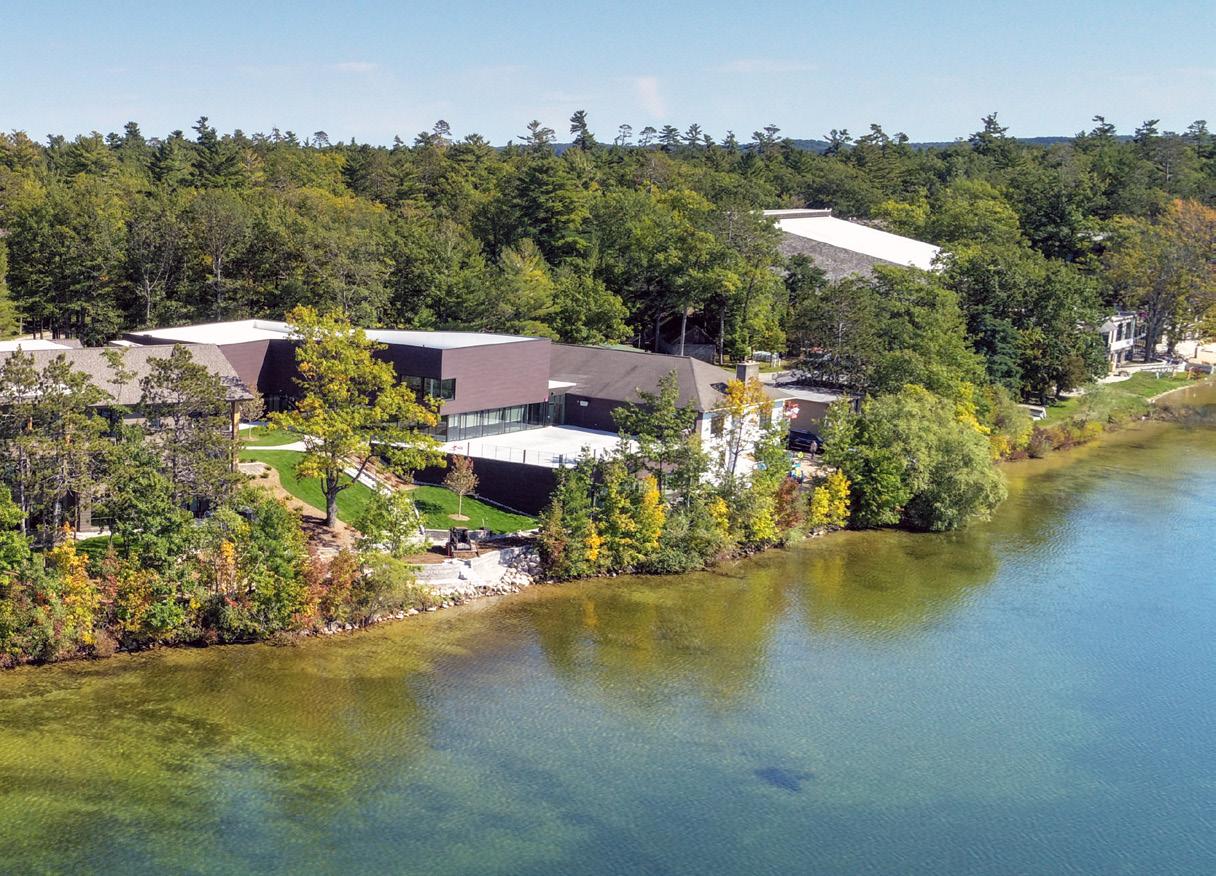
The Interdisciplinary Arts major attracts young artists with skills and interests in multiple artistic disciplines. With a curriculum designed
to accommodate exploration across arts areas, students participate in a daily studio class as well as core classes in contemporary arts performance and culture, arts leadership/management, and portfolio development. Independent studies, collaborative projects, individual studio time, arts electives, and guest artist instruction are also key components of the Interdisciplinary Arts major. Students may choose to participate in the Interdisciplinary Performance Collaboration, a year-long course open to all majors and grade levels that culminates in an original presentation in the spring. Through an innovative curriculum, interdisciplinary arts students pursue their individual artistic interests and develop vital leadership skills while cultivating a uniquely informed passion for the arts.
The classical music program, which offers a choice of performance and composition tracks, prepares students for the rigors of study at the university and conservatory level. Advanced music theory classes and weekly private lessons prepare students to put their skills into practice in a variety of ensembles, including orchestra, wind symphony, chamber singers, choir, brass choir, and more. These ensembles have a global
reputation for excellence, serving as reading ensembles for composition students and enabling performance students to develop concert experience and sight-reading skills, as well as knowledge of a diverse and challenging repertoire.
The contemporary music program imparts the skills aspiring musicians need to thrive in the commercial music industry. Students pursue a well-rounded curriculum that

Presidential Scholarsmore than any other high school in the nation
provides instruction in both the technical and business aspects of life as a contemporary musician. Students can choose from several tracks, including popular performance, jazz performance, and singer-songwriter.

Music production & engineering students work directly and collaboratively with artists, composers, songwriters, musicians, and other engineers, designers, and producers to create high-quality recording
and technology projects in a professional production environment. Students explore current practices and innovations in music technology, using digital audio workstations including Pro Tools, Ableton, and Logic. They learn electronic musicianship, music production, and key aspects of recording and production—from recording session set-up and microphone placement to signal flow and mix-down. Additionally, students master professional studio protocol and develop critical listening skills, as well as the aesthetic, communication, and organizational competencies vital to successful producers and engineers.
The Theatre major challenges students to develop both individually and within an ensemble. Students can focus their studies in acting, musical theatre, or design and production, while gaining exposure in all mediums.
Acting at Interlochen is Stanislavski-based with a focus on inner truth. Students explore a wide range of genres, including classical text, acting for the camera, and contemporary theatre, in addition to audition preparation.
The musical theatre track focuses on acting, with expanded skill development in singing, movement, and sequential dance training.
The design & production concentration enables students to perceive, visualize, and realize practical designs for the theatre. The track offers pre-professional training in multiple aspects of technical theatre, including scenic, lighting, costume, and sound design.
The Visual Arts major develops a young artist’s technical and conceptual abilities through an integrated curriculum that fosters connections between disciplines and media. By encouraging creative practices, such as flexible thinking, inquisitiveness, and perseverance, the Academy program lays the foundation for a deeper understanding of arts and innovation. Students develop advanced technical skills in multi-dimensional forms through daily study and practice of diverse media including painting, sculpting, printmaking, digital arts, and more. Regular critiques refine personal vision within a tight-knit artistic community. Visual artists at Interlochen gain the confidence and empathy to develop as citizen artists and leaders.
“All of our majors allow our students to customize their course load to suit their talents, interests, and professional goals,” explains Colatosti. “Small class sizes and a low studentto-faculty ratio ensure each student receives oneon-one instruction and mentorship. In addition, our faculty and counselors meet regularly with

Intelrochen is dedicated to the promotion of world friendship through the universal language of the arts
students to discuss their goals and develop an individualized curricular plan to prepare them for their next steps.”
Opportunities for multidisciplinary study and collaboration abound. Academy students are encouraged to explore elective classes, enroll in interdisciplinary coursework, and collaborate with fellow students—both inside and outside the classroom. Recent interdisciplinary collaborations have premiered at Carnegie Hall and National Sawdust in New York City and the New World Center in Miami. In 2023, Interlochen Arts Academy students will perform side-by-side with world-class New York Philharmonic musicians in the newly renovated David Geffen Hall at Lincoln Center.
“There is no better place to grow and thrive as a young artist than Interlochen Arts Academy,” states Colatosti.
At Interlochen Arts Academy, students live in a community that fosters constant creativity and collaboration. Inspired by the natural beauty of the campus and invigorated by the state-ofthe-art facilities, they live and learn alongside classmates who both challenge and support each other—and in turn, become lifelong friends.
At Interlochen, students find everything they need to master their craft: from superior equipment and resources to personalized instruction from artists who excel in their fields.
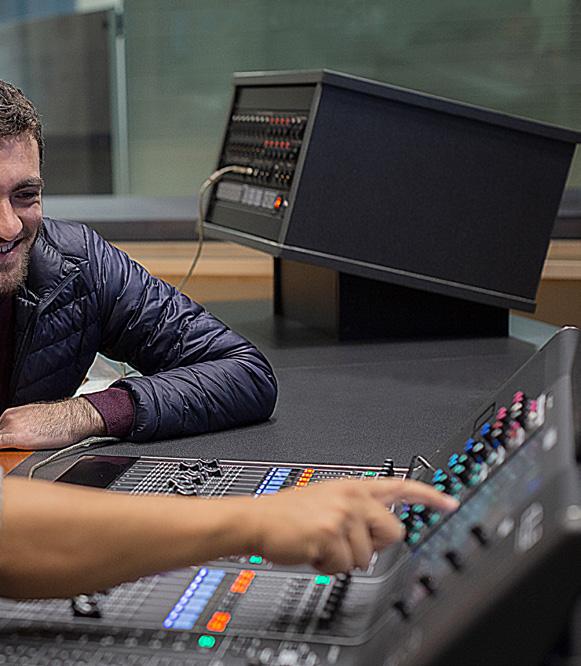
“Our students come from different cultures and educational backgrounds, from all over the county and all around the world, sharing one essential quality: a passion for the arts,” explains Colatosti. “They practice, perfect, and perform their art constantly, while supporting and encouraging each other.”
In addition to world-class artistic training, Interlochen Arts Academy students engage in an accelerated college-preparatory academic program that prepares them for success in any field.
“Our co-curricular approach emphasizes the connections between art and academics, encouraging students to think critically and creatively about problems in the classroom and beyond,” says Colatosti.
Through the lens of the arts, students gain a deeper appreciation for academic subjects and prepare for the rigors of the world’s most competitive colleges and universities. In addition, Interlochen Arts Academy students
can get a head start on college coursework through a partnership with Indiana University’s Advance College Project. Classes are taught face-to-face by Interlochen faculty certified by Indiana University.
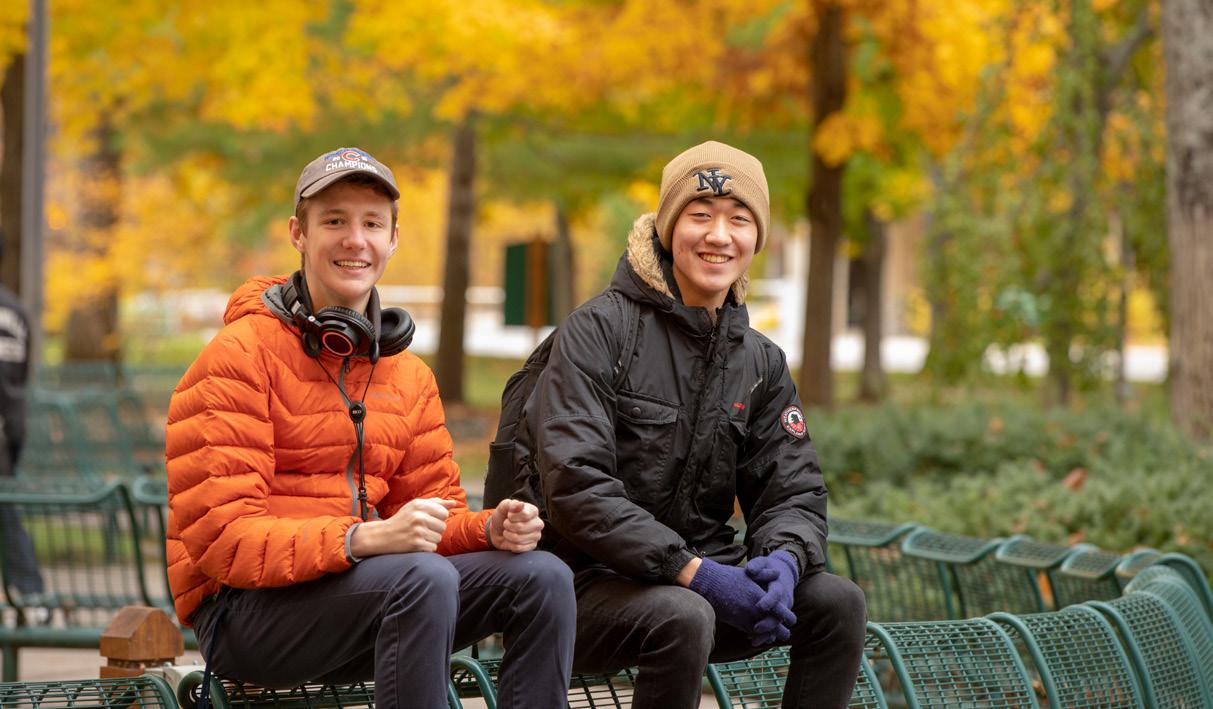
“This concurrent enrollment program fulfills high school graduation requirements and provides college credits accepted at most colleges and universities,” explains Colatosti.
According to Colatosti, the Interlochen Arts Academy experience is deeply formative.
“Social and emotional growth, academic achievement, and artistic opportunity combine here to help our students thrive now and in the
future. In today’s rapidly changing world, the skills, perspectives, and capacities developed here are enduring,” she says. “The Interlochen 5 lay the foundation for life—both within and beyond the arts.”
The Interlochen 5 are: Mindfulness, Wellness, and Resilience
“Artists require a balance of focus and freedom,” says Colatosti.
The life of an artist can be challenging and is frequently on public display, requiring high levels of tenacity and resilience.
“Our students develop skills in mindfulness, wellness, and resilience as a result of our unique programming,” says Colatosti.
Creative capacity is honed at Interlochen by studying the creative process across the Academy’s arts disciplines. Students master the underlying principles of creativity and design thinking, and learn to apply this mindset to all aspects of their lives.
“Effective collaboration draws the best from each individual to achieve something no one person can accomplish on their own,” explains Colatosti.
At Interlochen, drawing connections across artistic disciplines and other fields of discovery becomes the basis for breakthrough ideas.
Global art and global issues are central to the Academy experience.
“On our diverse and international campus, students develop a deeper and more direct understanding of different cultures and experiences, thus developing the character and empathy to thrive in an interconnected world,” says Colatosti.
“Community is at the heart of Interlochen Arts Academy,” says Colatosti.
At Interlochen, citizen artistry extends this concept as students develop, present, and teach art in service to others.
“We ask our students to take an active role in building a healthy community here, laying the foundation for a lifetime of rewarding and purposeful engagement,” says Colatosti.
An important part of that community is the faculty.
“Our phenomenal faculty and staff are committed to the students they serve and the mission they model. They set a high bar not only for artistic excellence but also for effective mentorship and embrace their role as inspirations to the next generation of creative changemakers,” says Colatosti.
Many faculty are practicing artists themselves—members of the Academy faculty have played in major orchestras, danced in professional companies, published books, performed on Broadway, exhibited works in prestigious galleries, and screened films at noted festivals.
Interlochen seeks to unlock the potential and unleash the capacity of the next generation of creative changemakers to lead inspired lives with enduring confidence
Beyond Interlochen, the faculty maintain busy schedules as artists, educators, and clinicians. Arts Academy faculty are frequently invited to adjudicate competitions, teach master classes, conduct ensembles, and set repertoire. Many are active members of professional organizations such as the International Double Reed Society, the Actors’ Equity Association, the National Association of Teachers of Singing, and the Screen Actors’ Guild, among many others. Music faculty frequently appear as substitutes with major orchestras, perform solo and small ensemble recitals, and record albums; Arts Academy Orchestra Conductor Leslie Dunner recently conducted the world premiere of Anthony Davis’ Pulitzer Prize-winning opera The Central Park Five, and will lead two performances as part of the New York Philharmonic’s Liberation Festival in March 2023. Several instructors are also on the faculty at colleges, conservatories, and universities across the United States.
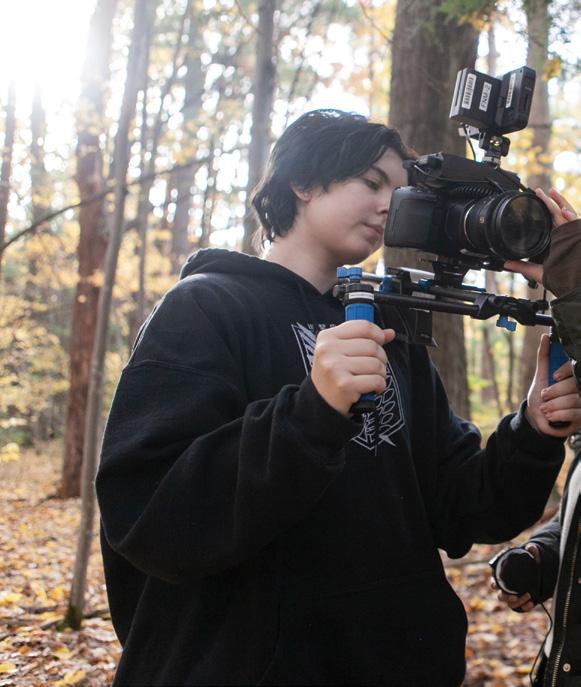

Arts Academy faculty frequently attend and present at conferences across the country. Faculty also participate in regular on-campus “development days” that feature sessions on pedagogy, technology, and other applicable topics presented by their colleagues.
A 6:1 student-faculty ratio enables meaningful connection and one-on-one guidance, with faculty members often becoming treasured mentors for life.
Parents: An Integral Part of Interlochen Parents are also important members of the Interlochen community. A positive and constructive partnership between the Academy and a student’s parents and family is essential to the fulfillment of the Academy’s mission.

“We include parents throughout the school year, with online access to grades and class activities, Family Weekend, an open campus to families, and virtual programming offered by our Education Office,” explains Colatosti.
According to Colatosti, parents not only stay connected to their students through regular communication, they also receive a weekly Academy newsletter informing them of updates, performances, announcements, and other relevant information across campus and throughout the year. Parents have multiple opportunities to visit campus or stay tuned in with live broadcasts of student performances.
Opportunities for Fun, Friendship, and Personal Growth What happens inside the classrooms, studios, and rehearsal spaces is just part of the Interlochen Arts Academy experience.
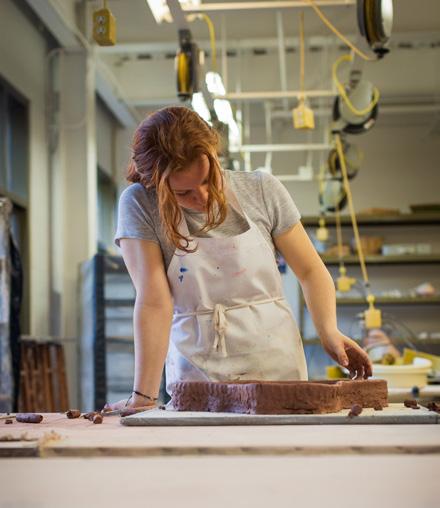
“Outside of academic and artistic commitments, students have abundant opportunities for fun, friendship, and personal growth,” says Colatosti.
At Interlochen, boarding students live in dual-occupancy rooms in one of eight residence halls. Residence Life instructors provide around-the-clock support and foster community
within their hall through regular social events and activities in addition to collaborating closely with advisors to lead the Academy’s social-emotional learning program.

A recreation team curates a variety of structured and student-led activities. The Dennison Center serves as the hub for many of these activities, such as rock climbing, movie nights, and Super Bowl parties. Annual traditions include an end-of-the-year carnival; MORP, Interlochen’s answer to prom; and much more.
For students who strive to excel on the field or the court, Interlochen Arts Academy sponsors four school sports: basketball, volleyball, cross country, and lacrosse. In addition, students can enjoy intramural competition in ultimate frisbee, soccer, tennis, and badminton. Interlochen’s
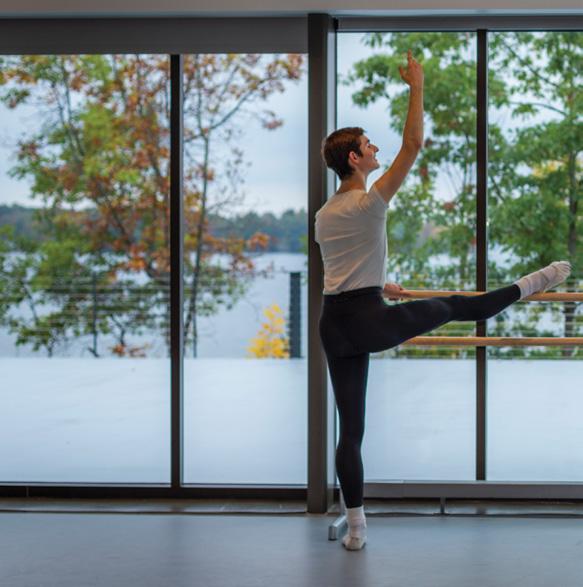
campus has ample space for almost any kind of sport: kickball, dodgeball, and other games provide opportunities for all students to participate in a fun and positive environment.
Clubs and organizations provide an opportunity for students to bond with peers outside their major and explore other areas of interest. Some of the most popular clubs have included the Black Student Union, the Young Feminists Club, the Interlochen Book Club, the Student Sustainability Club, the Traditional Chinese Art Club, Model UN, Stilt Walking, and the Interlochen Podcast Cooperative, among others. Students are also welcome to form their own clubs, groups, or organizations.
After Interlochen, our students lead meaningful lives in the arts and beyond,” says Colatosti.

”Students graduate from Interlochen with more than a high school diploma and honed artistic skills—they also carry the values of dedication, resilience, independence, and collaboration as they embark on their next chapter.”
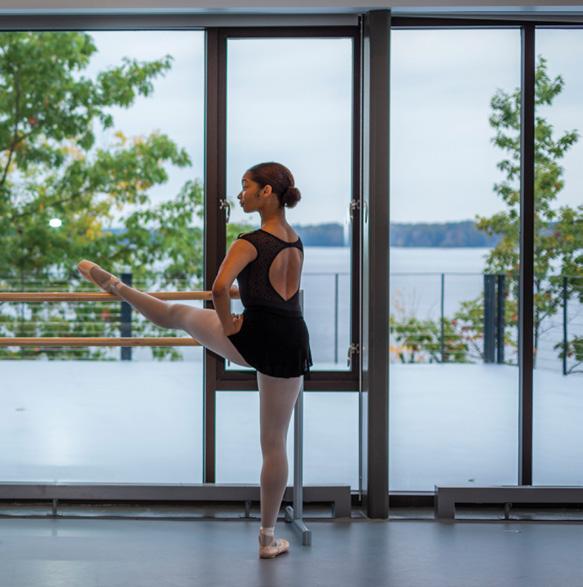
A majority of graduates are accepted into one of their top three college choices and earn more than $35 million in scholarships
● Brittany Cavallaro - New York Times best-selling author, Charlotte Holmes series
● Elaine Douvas - Principal Oboist, Metropolitan Opera Orchestra
● Janet Eilber - Artistic Director, Martha Graham Dance Company
● Peter Erskine - Grammy Award-winning jazz drummer
● Holly Gilbert - Director, High Altitude Observatory at the National Center for Atmospheric Research (NCAR)
● Steve Hayden - Former Vice-Chair and Chief Creative Officer, Ogilvy Worldwide
● Fred Hiebert - Archeologist-in-residence, National Geographic
● Jewel - Grammy Award-winning singer-songwriter
● Anthony McGill - Principal Clarinetist, New York Philharmonic
● Doug Stanton - New York Times best-selling author, In Harm’s Way
● Nathaniel Mary Quinn - Painter
After Interlochen, most students choose to continue their studies at some of the world’s most prestigious colleges, universities, and conservatories. Recent graduates have enrolled at Harvard University, The Juilliard School, Columbia University, Eastman School of Music, Berklee College of Music, School of the Art Institute of Chicago, Rhode Island School of Design, and other acclaimed institutions. Annually, a majority of graduates are accepted into one of their top three college choices and earn more than $35 million in scholarships.
Graduates of Interlochen also join a tightknit network of exceptional alumni working and learning in a wide range of fields.
Interlochen alumni hold seats in all of the country’s major orchestras; star regularly in Broadway productions; appear at the top of The New York Times’ best-sellers list; dance in prestigious companies; and collaborate behind the scenes of feature films. They can also be found practicing medicine and law, managing NASA’s heliophysics division, and teaching in classrooms across the globe.

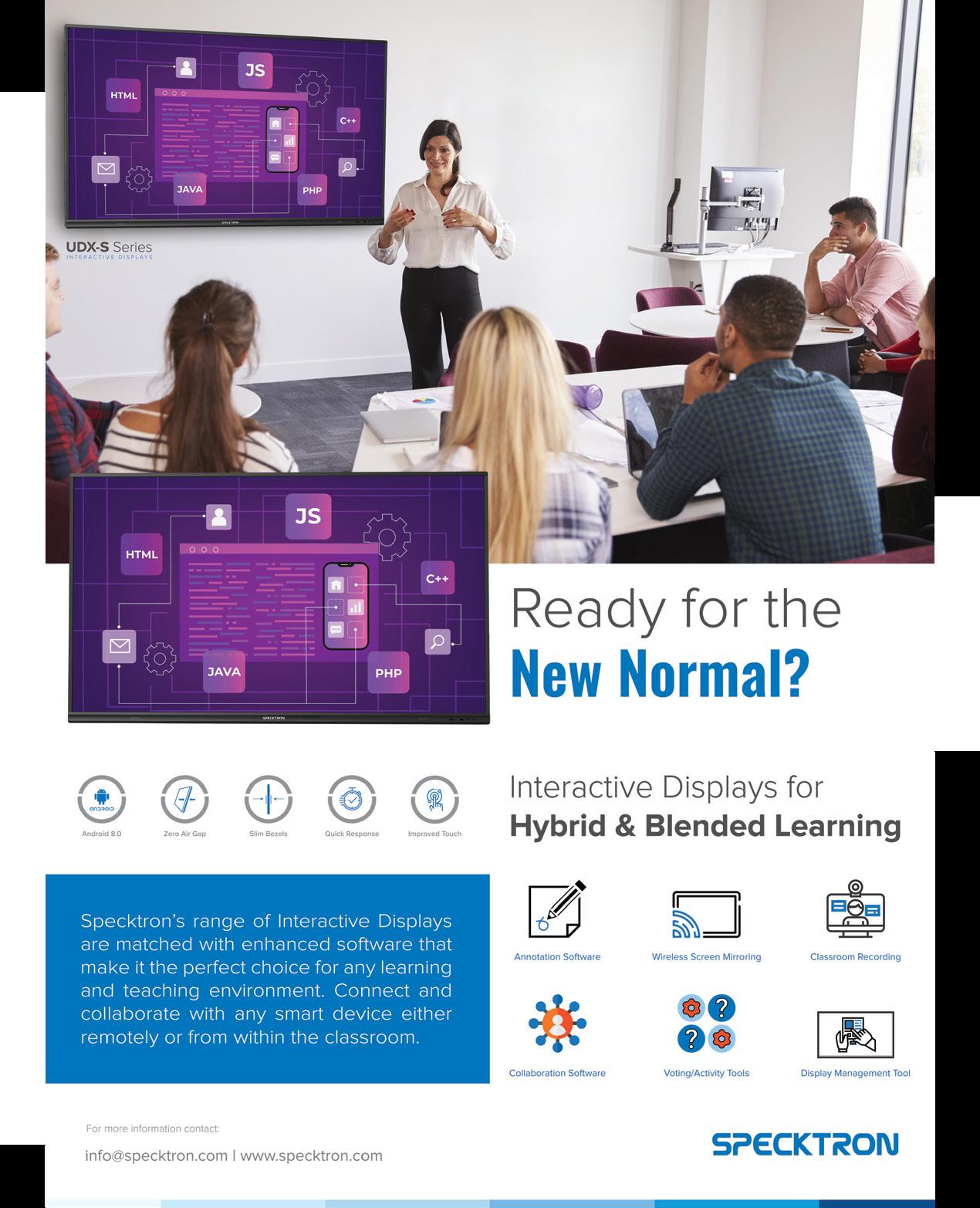
Engy Olama, Certified Erickson and Lanning Concept-based Trainer, Happiness Coach, UAE
Engy is an international educator with 10+ years of teaching experience and 7+ years of leadership experience in IB PYP and American Schools. She worked as a lower primary homeroom teacher, lower primary coordinator, assessment coordinator, and deputy head of primary K-5. She led diverse teams and teachers through international authorizations and national accreditations. She is a certified Erickson and Lanning Concept-Based Curriculum and Instruction Trainer, IB Programme Leader, and NEASC Visitor. She coaches teachers and teams in developingtheirteachingandlearningpracticestoensure that students’ agency is the driving force of learning. She designed courses and delivered online and face-to-face workshopsto500+participantsthroughouthercareer.Engy strives to help learners develop their academic and nonacademic skills to become well-rounded, internationallyminded citizens who can adapt to change and create a better world. She is also a certified Happiness Coach and she is passionate about promoting school happiness and well-beingthroughenhancedteachingandlearning.

No matter how strong a school’s strategic plan is if staff members cannot effectively execute it. School culture is a significant element of success. The best way to assess school culture is to watch how people interact, how students walk in the hallways, the conversations held in staffrooms and meetings, and feedback from parents. Conversations are powerful and impact students’ experiences and learning, making it crucial for schools to be intentional about cultivating powerful discussions.
Communication seems to be a buzzword in every school, and it is common to find it part of the values a school aims to embrace. That is
why I wanted to dig deeper into conversations and highlight the difference between talking and having powerful conversations. Have you ever sat in a long meeting where people were talking but had no outcomes from their discussion? Have you worked with educators who only talk but never act? Have you worked in schools where action and impact were the priority? If you experienced the latter, then you have experienced powerful conversations. Now let’s see how powerful conversations sound from different stakeholders.
I am sure you would agree that successful leaders are always outstanding communicators. They greet people by name and have random conversations, which make them approachable.
Communication seems to be a buzzword in every school, and it is common to find it part of the values a school aims to embrace
They are also keen on delivering timely information to different stakeholders and understand the importance of connection. If you worked with successful leaders or if you are one yourself, I am sure you heard or said statements as these:

“I wanted to meet with you before I make any announcement.”
“I want you to hear it from me first, instead of reading it in the email.”
“I’d like to hear your thoughts on this to make an informed decision.”
“Do you have any questions?” “How can we look at this issue from another perspective?”
School leaders are indeed responsible for setting the tone of expected behavior. However, every staff member has a shared responsibility regarding powerful conversations. Working
in a school usually means dealing with a diverse culture; teachers and staff from different backgrounds won’t see things the same way. Therefore, it is essential to ensure that staff members talk to each other. This can be accomplished by setting clear agreements on expected conversations. Also, we need to make sure they have time to make this happen. Providing teachers with collaborative planning time is a good start, but it will only be effective when there is ownership and participation from everyone. We know we succeeded when
we started seeing staff collaborating across different departments and sharing ideas informally. The best way to assess the power of the conversations among staff is to look for it in the classrooms. In the end, everything we do in schools impacts learning.
Powerful staff conversations always lead to action. Some may sound like these statements:
“Let me bounce this idea with you. I want to implement it in my class. What is your feedback?”
“I think our meeting went well, we reflected, and we have clear action points.”
“We have a great principal; she is keen on listening to the staff. I always feel heard!”
We all know that parents can be our schools’ best or worst promoters, which makes it vital to know the conversations happening among your parents’ community. Any parent would want clear answers and timely responses. Parents would talk about the stability and happiness of the staff because they deal directly with teachers. One stigma about parents is that they always want to get their way. In my experience, I have mostly seen parents seek clarification, understanding, and transparency. We never fail to satisfy them if we put ourselves in their shoes. As a parent, I know that by hard.
Here are some examples of influential parents’ conversations:
“I trust my children’s school; they are transparent and listen to our feedback.”
“This new principal knows what he is doing, we get answers, and our issues are always resolved.”
“My daughter is happy at school; her teachers listen to her and are proactive.”
We all know that parents can be our schools’ best or worst promoters, which makes it vital to know the conversations happening among your parents’ community
In my experience as a school visitor, I can firmly confirm that students are the best representatives of a school. The picture always gets clearer once we meet students. We can quickly tell if they have been told what to say because they end up sharing what they experienced. I always like hearing students’ feedback about their teachers. They are always fair and have good reasons to support their opinions. Have you ever been walking in the hallway and heard students speaking about an absent teacher? If you did, you might have heard them cheering that this teacher is finally absent and this is their best day, or they said they miss their teacher.
Students always say something about school, whether they speak about their teachers, friends, learning, or playtime. Each conversation has value and tells us something. The most powerful conversations we could hear were the ones led by students and addressed to the whole community. This might sound like the statements below:
“I feel engaged when the teacher gives us a question, we respond to it, and then we share as a whole class or even debate.”
“Miss Amy is the best. Today she asked us which way you guys prefer to learn. Please give me an example to help me understand the best way to teach you.”
“Today is one of my favorite days ever. We went around the school and completed a survey. I learned what other people in our school do.”
Powerful conversations won’t just happen overnight. We must be intentional about them and
take the time to cultivate them. The first step is creating a safe place for our staff and students. A school where mistakes are considered a learning opportunity and risk-taking is highly encouraged. Difficult conversations will always happen, but they shouldn’t be the norm. Educators spend most of their days and lives in schools, and they deserve to feel safe, belong, and stay motivated.
“Leaders cultivate powerful conversations by creating a safe working environment.”
Powerful conversations won’t just happen overnight. We must be intentional about them and take the time to cultivate them

2022
Incepted in 2011, North London Collegiate School Jeju (NLCS Jeju) is a day and boarding school delivering exceptional British education to Koreans and students worldwide. Here, students combine academic excellence and a deep love of learning with a wealth of cocurricular opportunities to develop into exceptional individuals who believe anything is possible.
“We, at NLCS Jeju, aspire to develop an outward-looking, internationally minded community of young people who have a clear understanding of the value of commitment and service to others,” shares Lynne Oldfield, Principal, NLCS Jeju.
NLCS Jeju draws on a history of educational excellence from the great

Jeju has become, in a short period of time, a reference for excellent international education in Asia, providing an aspirational academic education taught by highly qualified, knowledgeable and inspiring teachers through interactive, thoughtprovoking lessons
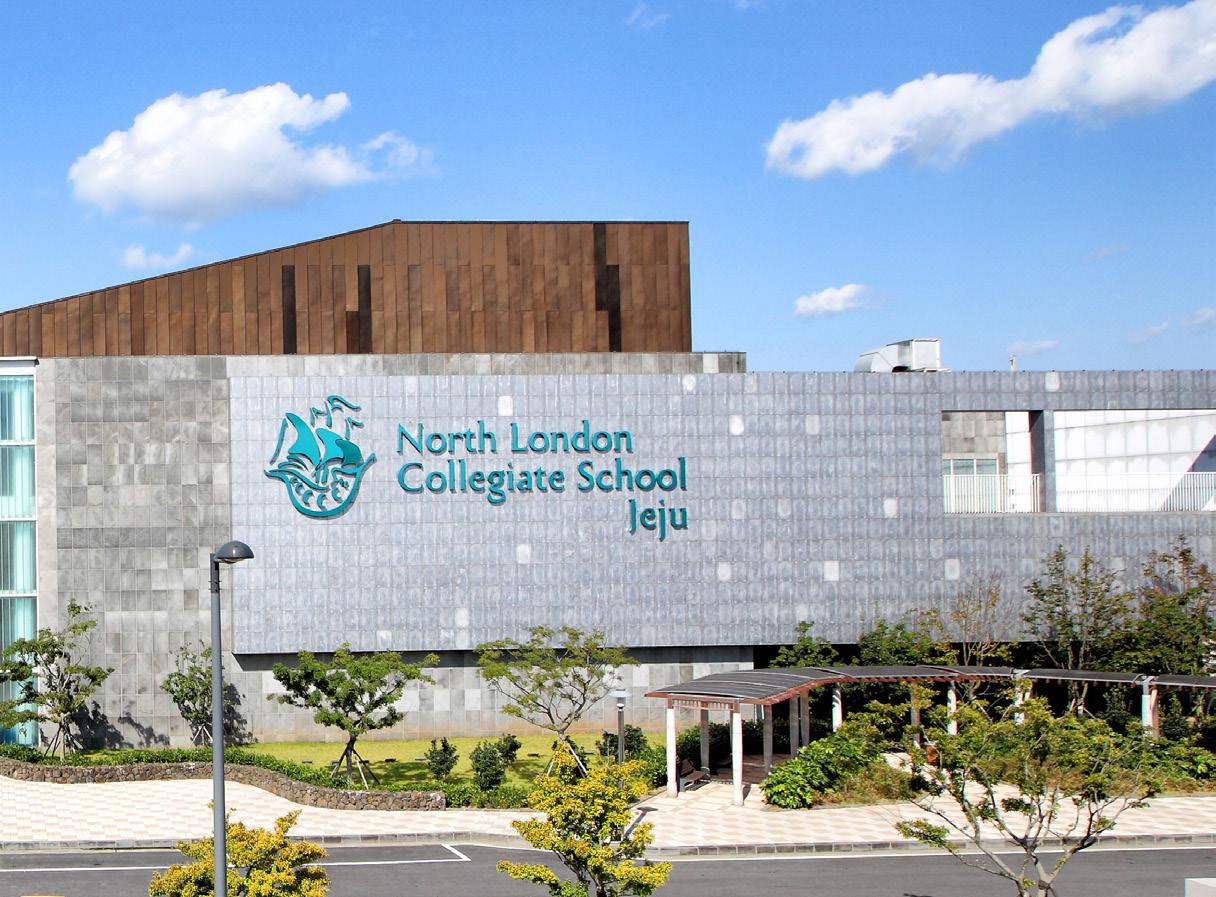
Victorian educationalist Frances Mary Buss who established North London Collegiate School (UK) in 1850 and paved the way for an exciting and inclusive movement in the education of young women. Later on, NLCS UK embarked on the exciting project of establishing a Korean campus on the beautiful island of Jeju, followed by founding NLCS campuses in Dubai, Singapore, and Vietnam.
Today, NLCS Jeju has become one of the most prestigious international schools, not only in Korea but also in Asia, providing an aspirational academic education taught by highly qualified, knowledgeable, and inspiring teachers through interactive, thought-provoking lessons. The school enrols students from reception through to Year 13.

“Every child matters at NLCS Jeju, and as Principal, I believe passionately in the importance of the individual,” states Ms Lynne Oldfield. “We value every student at NLCS Jeju in their own right, ensuring they are encouraged to develop his/her talents to the full in a community where there are no stereotypes and where every achievement, however small, is celebrated.”
Situated on the UNESCO World Heritage island of Jeju, NLCS Jeju has a beautiful, large campus with state-of-the-art infrastructure, making it an ideal base for delivering a world-class, holistic, international education in Korea.
As part of its modern facilities, NLCS Jeju is endowed with 3 well-stocked libraries, a specially curated sports centre, drama studios, a huge performing arts centre, computer suites, music suites with practice rooms and performance spaces, a 24-hour medical centre, and a fully equipped science labs. Likewise, the boarding facilities at NLCS Jeju include break-out rooms, games areas, small libraries, computer rooms, study rooms, snack rooms, and soundproof music rooms.
World-renowned British Curriculum: The students of NLCS Jeju study a British curriculum from year 1 to 9, followed by IGCSEs in year 10 and 11 and IBDP in year 12 and 13.

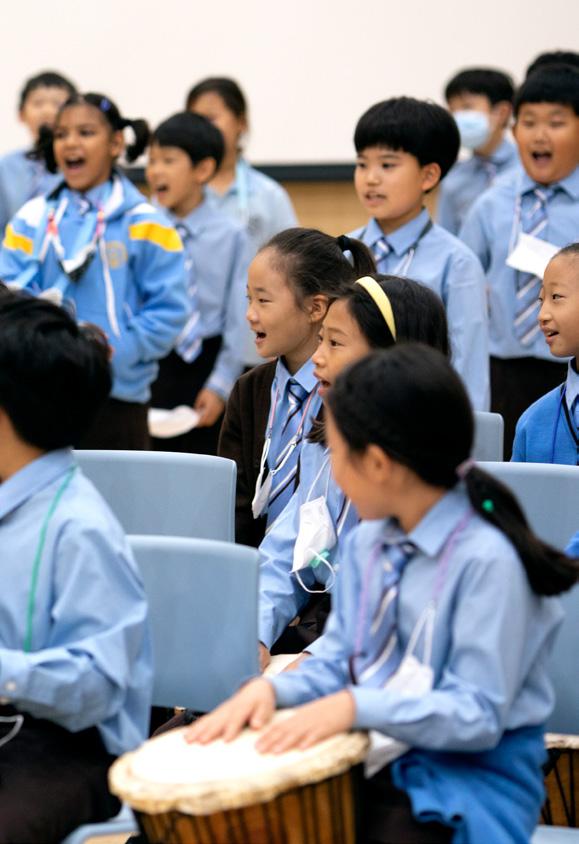
NLCS Jeju students combine academic excellence and a deep love of learning with a wealth of co-curricular opportunities, to develop into exceptional individuals who believe that anything is possible
NLCS Jeju offers a unique co-curricular programme designed to develop characteristics such as leadership, teamwork, risk-taking, and commitment in its students. As prefects, house captains, big 8, little 8, and student council members, students have the opportunity to lead and support their community and fellow students. Additionally, with superb outdoor and indoor facilities and a staff dedicated to cocurricular enrichment, NLCS Jeju offers over 150 different activities throughout the week, as well as an extensive range of academic societies. The programme also supports a full range of domestic and international trips for sports fixtures or other events of educational value. As a result, the school encourages students to discover new passions and

NLCS Jeju offers a programme with almost 150 different activities and societies to choose from every week
helps them grow and develop additional skills and interests that the world’s best universities look for when selecting their students.
Diamond Model: NLCS Jeju employs a diamond model of education which offers the benefits of a single-sex education while at the same time encouraging boys and girls to grow together outside of the classroom. From ages 4-11, boys and girls share classrooms; from ages 11 – 16, students are educated separately, and in the sixth form, they come together again. In this way, students get to experience the best of all worlds.
Based on a traditional British approach, the boarding homes at NLCS Jeju provide excellent pastoral care with a supportive, homely environment where students make friends and connections for life. In a nutshell, NLCS Jeju becomes a home away from home.

Awards & Accreditation: NLCS Jeju is ranked amongst the Top 50 IB schools in
the world - Class of 2021. It was also named the British International School of the Year 2021. Moreover, NLCS Jeju is accredited by CIS, a membership community which works collaboratively to shape international education through professional services to schools and higher education institutions and will undertake COBIS accreditation this year. Recently, NLCS Jeju has been shortlisted for International School Award 2023 under the Safeguarding category by ISC Research.
The staff of NLCS Jeju brings a wide range of academic and professional experience and a wealth of enthusiasm. They are not only eminently capable teachers but are also compassionate mentors to their students.
The school offers excellent professional development opportunities to teachers, such
as professional leadership qualifications (NPQML), PhD opportunities, research fellowships, etc. In addition, NLSC Jeju runs an impressive Graduate Assistant Programme where new graduates spend a year at its campus—spending time in the classrooms, different departments, and at boarding homes. Later, if they decide to pursue teaching as a career, then the school supports them through the teacher qualification programme such as International Postgraduate Certificate in Education (iPGCE). For the in-house, fulltime faculty, the school organises regular onsite training, such as suicide awareness, first aid, and other professional development

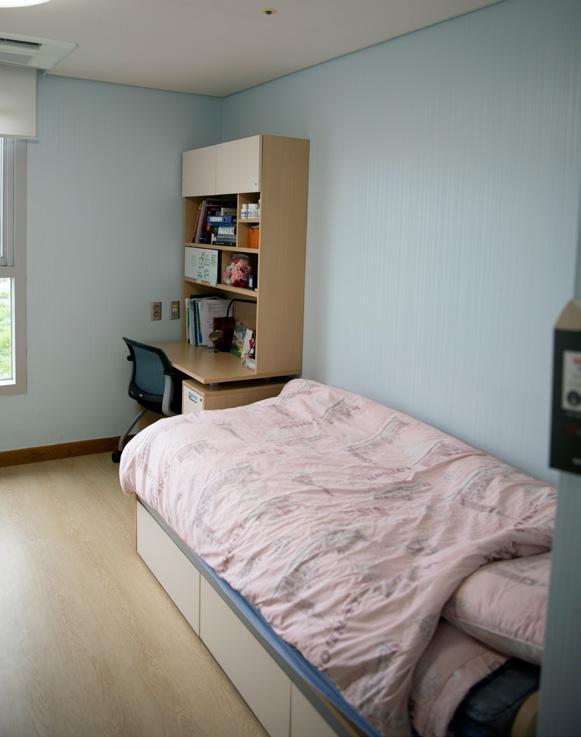
NLCS Jeju offers a programme with almost 150 different activities and societies to choose from every week
programmes known as ‘Pop up PD’, which includes several virtual talks and workshops via eJAWS.
Currently, there are approx. 1500 students enrolled at NLCS Jeju, each class having a maximum of 22 students. The class sizes often get smaller by the time students reach IGCSE and IBDP from year 10.

In every class, there is a class teacher along with a learning support assistant for young students. The school also has learning support assistants, an Academic English department, and a great pastoral team to support students who need additional help with their studies or English. Likewise, NLCS Jeju’s boarding students have access to an ‘Academic Support Programme’, where teachers provide academic support in the boarding homes during evening
hours. The students can ask for general advice or subject-specific questions to the teachers who are available to guide and support them at every step of the way.
At NLCS Jeju, parents are a key part of its school community. For Junior School, NLCS Jeju hosts ‘Meet the Teacher’ events where parents are invited to meet their child’s class teacher, as well as a Parents as Partners Programme. The school also has an active Parent Relations Group (both for Junior and Senior School), where teachers have termly meetings with them.
Likewise, NLCS Jeju also organises ‘Parent Academy’ and ‘Parent as Partners’ events once a term, where parents come to school to participate in a mixture of a presentation and small group workshops. Topics covered in
the previous events were related to students’ well-being, the pastoral system, how to work with your child to ensure they are safe online, and how to have difficult conversations with teenagers.
“Our parents are very supportive of the school and have many varied reasons why they have chosen NLCS Jeju,” shares Principal Ms Lynne Oldfield. “They recognise that we succeed in combining academic excellence with a wealth of co-curricular opportunities, all underpinned by a deep commitment to the individual needs and enthusiasms of each student.”
The students of NLCS Jeju have a track record of excelling in academics and co-curriculum

activities. This year, 78.9% of students achieved A* to A in their IGCSE– 91.1% A* to B and 97.5% A* to C (*Provisional).
Owing to such remarkable grades, NLCS Jeju’s students are accepted into elite and prestigious universities around the world.
Going ahead, NLCS Jeju will continue to focus on expanding its pastoral support and house system and ensuring that students strike a balance between academics and non-academics.
Moreover, the award-winning school also plans to shed light on the importance and benefits of boarding and aims to attract a large number of boarders from all over the world.
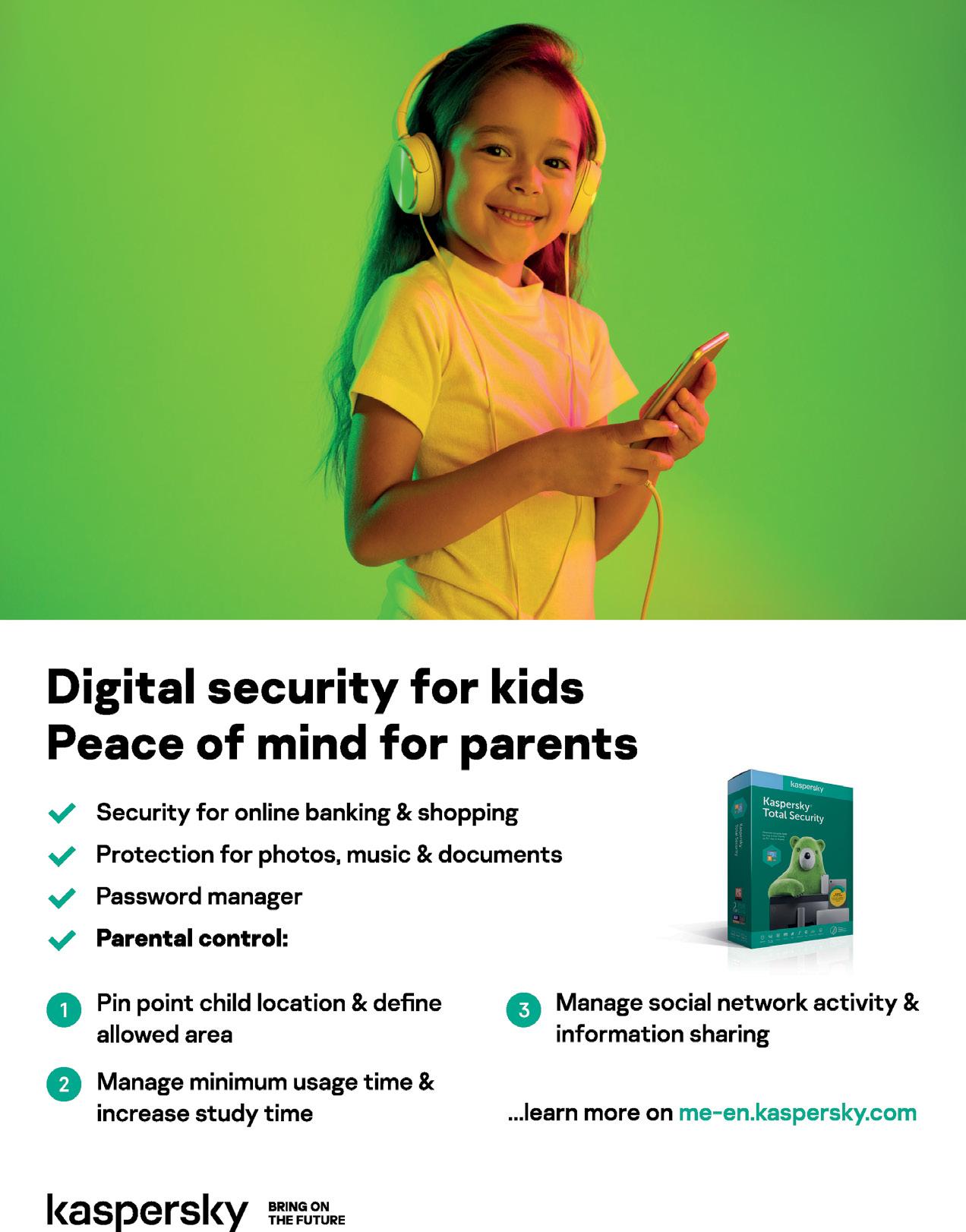 MUST-WATCH
SCHOOLS IN 2022
MUST-WATCH
SCHOOLS IN 2022
Children can experience learning difficulties for a variety of reasons. One of the causative factors could be dyslexia. It is estimated that as many as one in five kids has dyslexia and that 80 to 90 percent of kids with learning disorders have it. The most common symptom of dyslexia is difficulty learning to read, as
it impairs a child’s ability to recognize and control linguistic sounds. Aware of the severity of dyslexia, Peter Gow Jr., founder of The Gow School, decided to take action to make a positive impact on the educational experience of intelligent students. With 20 years of expertise in teaching at Choate Rosemary Hall, Nichols School, and The Park School, Gow theorized that the key to success

The Gow School is a coed college-prep boarding and day school for students, grades 6-12, with dyslexia and similar language-based learning disabilities in New York


Summer Program began in 1990, and the School decided to become co-ed in January 2012, offering day and boarding options.
The Gow School is a co-ed college-prep boarding and day school in New York for students in grades 6–12 with dyslexia and other language-based
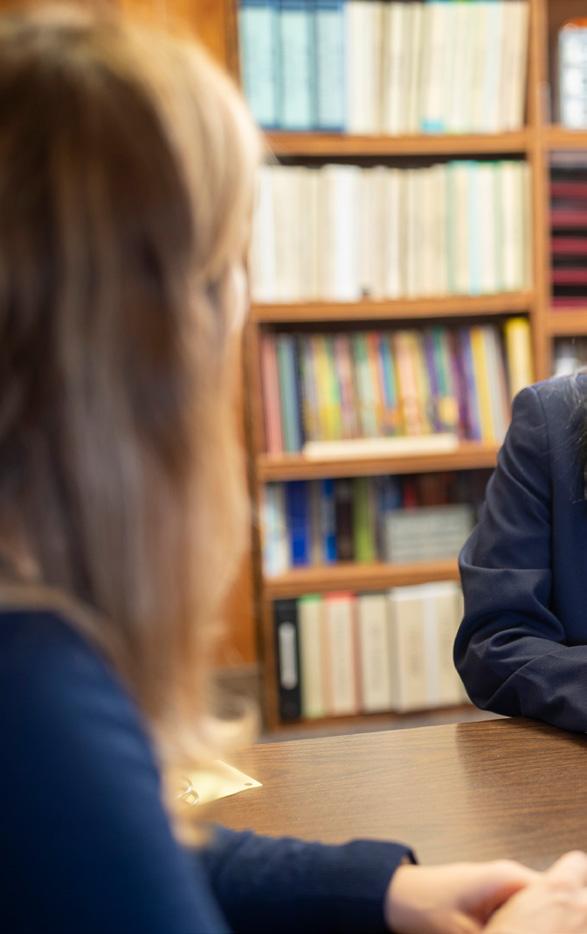
lay in small classes and intensive drills. He moved his family to South Wales and converted the farm where he had run a summer camp into a boarding school for boys who struggled in school. In 1926, The Gow School opened its doors for boys who struggled with dyslexia in the converted barn.
The Gow School has evolved and innovated over time. The campus has expanded from a single main building (a converted horse barn) to over 30 buildings. The co-ed Gow School
learning disabilities. Since 1926, The Gow School has helped students with language-based learning differences develop the skills and confidence to succeed in higher education and beyond as creative, compassionate adults and engaged citizens as a leader and innovators in dyslexia education, with a commitment to the values of kindness, respect, honesty, and hard work.

Gow specializes in the remediation of dyslexia (reading problems) and related language-based learning disabilities. “It is common for our students to have attention (ADD or ADHD) and/or executive function difficulties,” shares Meghan Mileham, Assistant Director of Admissions at The Gow School. Dyspraxia, CAPD (Central Auditory Processing Disorder), dyscalculia, dysgraphia, and disorder of written expression are all possible diagnoses. All Gow
Gow’s Reconstructive Language program is accredited by The International Multisensory Structured Language Education Council (IMSLEC) and meets the International Dyslexia Association (IDA)’s Knowledge and Practice Standards for Teachers of Reading
teachers are trained in the fundamentals of the RL program to support language development across the curriculum.
Here’s a quick rundown of the RL program. Soon after the school opened, Gow met Dr. Samuel T. Orton, the pioneering neurologist whose research pointed to a phonetic
approach to educating those with “specific language disabilities.” Over thousands of hours of teaching and experimentation, Gow developed the Reconstructive Language (RL) program, which Orton-Gillingham based and is still used daily at the School.
Reconstructive Language (RL) breaks down the elements of the English language using proven MSLE (multisensory structured language education) principles: multisensory, sequential/ logical, systematic, synthetic/analytical, and diagnostic. Students practice phonics, spelling, vocabulary, and oral reading for fluency and comprehension. Meghan said, “Nevertheless, RL remains the foundation of our curriculum, kept
current with the latest technology and validated by ongoing research. A growing cadre of loyal and grateful alumni, with a wealth of success stories, speaks to the success of Peter Gow, Jr.’s dream.”
The Gow School keeps parents informed of their children’s life on campus through video messages, phone calls, and social media. Meghan asserts, “We believe in a no surprise policy at Gow, and keeping the parents in the loop helps with that.”
Talking about student-to-teacher ratios, Meghan added, “We have a low 4:1 student to faculty ratio with an average class size of 5.”
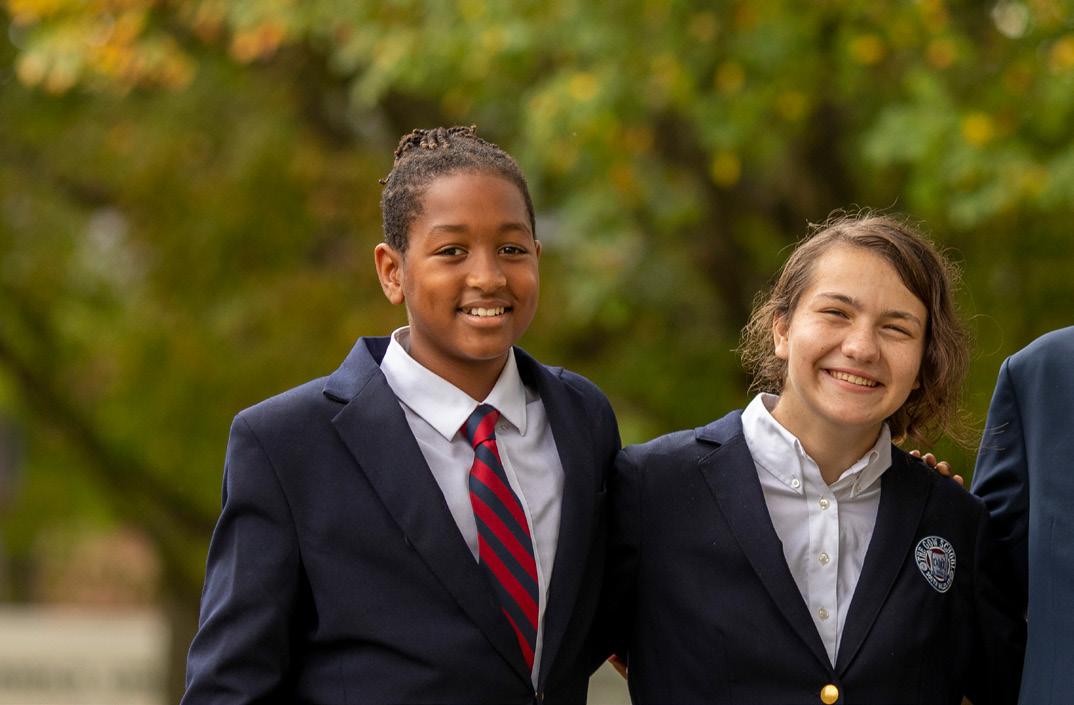
Students are grouped based on their ability in classes such as RL and math to ensure that students are on the same level as their classmates and do not fall behind in class.

Meghan mentions, “Our RL teachers are highly trained, and all Gow Teachers receive instruction in the basics of the RL program so that they can support language development across the curriculum.” As experts in language remediation, faculty, and administrators regularly present at conferences, including the International Dyslexia Association (IDA), Learning Disabilities Association of America (LDA), and The Association of Boarding Schools (TABS).
Gow’s Reconstructive Language program meets the IDA’s Knowledge and Practice Standards for Teachers of Reading. “Our teacher preparation program, accredited by The International Multisensory Structured Language Education Council (IMSLEC), requires a supervised teaching practicum,” underlined Meghan.
The highly trained and dedicated faculty implement an innovative remediation program that blends structured schedules, small classes, individualized attention, and technology-rich environments with motivated students. It’s no surprise that longitudinal test results and other data, as well as alumni anecdotes, demonstrate RL’s transformative power.
“We sit on 125 acres in South Wales, NY, about 45 minutes South of Niagara Falls. We have 33 buildings with about 400,000 square feet of roofed space. Gow created a facility to enhance
S ince 1926, The Gow School has been helping students with language-based learning differences develop the skills and confidence to succeed in higher education and beyond as creative, compassionate adults and engaged citizens
our already strong programs in science, technology, and research (STAR),” describes Meghan. The building houses classrooms, an engineering lab, a seminar space, a Computer Numeric Control (CNC) vertical milling machine, a 10-ton press that can bend titanium armor, and a pro lathe. The CNC machine enables robotics students to create more complex robots for the BotsIQ competition.
The advantages of technology are also perceptible in other facets of Gow’s life. Students have access to a wide variety of technology-rich courses, such as graphic design, broadcast journalism, and videography, as well as flipped classrooms, where several teachers use this innovative teaching method, as well as Microsoft Teams. In every classroom, technology is used based on the curriculum and students’ interests and needs. Meghan added, “We have a 50,000 square foot athletic facility with 2 multipurpose courts, three squash courts, 3 outdoor tennis courts, 2 outdoor sports courts, and 3 multipurpose fields.”
The beauty of the arts at Gow is that they allow students to use different skill sets. Integral to our program, art is not pushed aside to fit language remediation or extra help. Meghan says, “Some of our students deepen existing artistic strengths. Others discover hidden talents. All can develop skills and express their creative voices. In fact, it’s not unusual for our graduates—as many as a third some years—to choose art majors, arts colleges, and artistic careers.”
Gow offers painting, drawing, 3D art (sculpture), pottery, art history, computer
graphics, and photography. “Art history, which typically has lots of reading and writing, integrates more classroom discussion—another example of how we teach with an understanding of students’ learning styles,” underlined Meghan. Courses are available at the basic, intermediate, and advanced levels depending on the art.
Many upper-level students create college entrance portfolios and have studio space. Gow does not provide formal music training, but students can take private and group instrumental and voice lessons. They can join two club groups: the Music Ensemble and the Gow
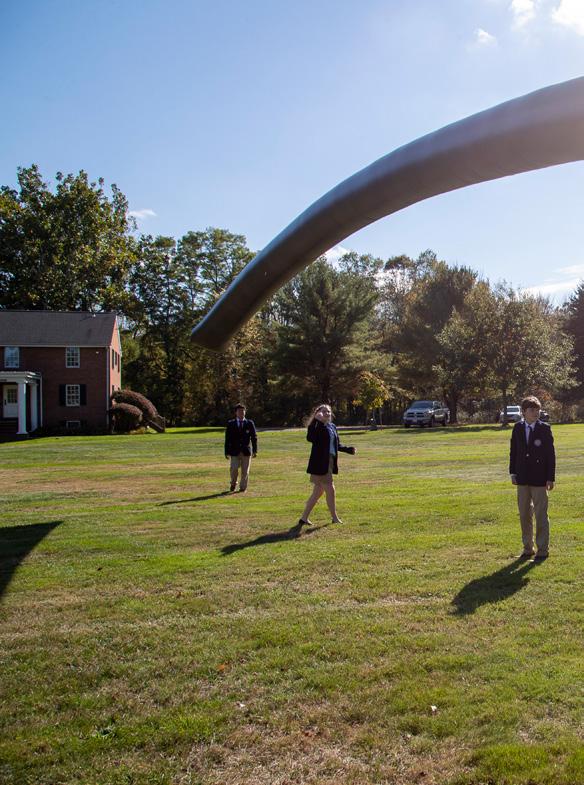
Vocalists. Students can also participate in several small studio recitals and two public recitals yearly. Students’ artistic talents and skills are nurtured at Gow, from the visual-spatial to the musical. Meghan added, “We know that playing a role on stage can play an important role in a student’s life, and we encourage all our students to immerse themselves in the creative process.”
COVID hit schools hard in March of 2020. Meghan recalls, “When we got word from New York State that all our students needed to

go home, it came right before Spring Break. We sent students home a week earlier than we thought we would, with every intention of bringing them back after the pre-scheduled spring break. However, that did not happen, and we finished off the rest of the School year virtual.”
When the students went home, the technology department went into problemsolving mode, communicating with students and sending work through Microsoft Teams. Since all of their students had computers at home and were familiar with the device, their 1:1 laptop program has been extremely beneficial at this time. They adhered to the Gow schedule as much as possible, holding daily assemblies as a school as a whole.
Meghan shares, “After finishing the school year virtually, and with guidance from the state, we were able to welcome campers for our five-week summer program in June. Utilizing the cohort model and creating a bubble, we successfully ran our program with zero confirmed cases on campus. In July, we were also able to hold an in-person commencement for the Class of 2020. Not all members could attend because of travel restrictions, but they could join us virtually.”
In the fall of 2020, 130 students returned to in-person learning. A bubble was created to keep them safe, requiring students to remain on campus and not be visited by outsiders. With greater guidance and resources available, the bubble was gradually opened. “Throughout the entire pandemic, we continued to follow the motto “safe, reasonable, and independent” and followed guidelines from the CDC and New York State. From an enrollment
Gow’s RL remains the foundation of its curriculum, kept current with the latest technology and validated by ongoing research
standpoint, we saw a decrease of 20 percent, mainly from a decrease in our international population because of the unknowns of COVID and requirements. We are starting to see an uptick in our international population again as we enter this admissions cycle,” added Meghan.
The Gow School is accredited by the New York State Association of Independent Schools (NYSAIS). Gow’s Reconstructive Language program is accredited by The International Multisensory Structured Language Education Council (IMSLEC) and meets the International
Dyslexia Association (IDA)’s Knowledge and Practice Standards for Teachers of Reading. The Gow School is a member of the National Association of Independent Schools (NAIS), The Association of Boarding Schools (TABS), The College Board, The Independent Curriculum Group, and the Learning Disabilities Association of America (LDA).
Looking ahead to the future of Gow, Mr. Rogers, the Headmaster, will retire in July 2023 after nearly twenty years at the school. Mr. John Munroe will be the 7th Head of School at Gow.
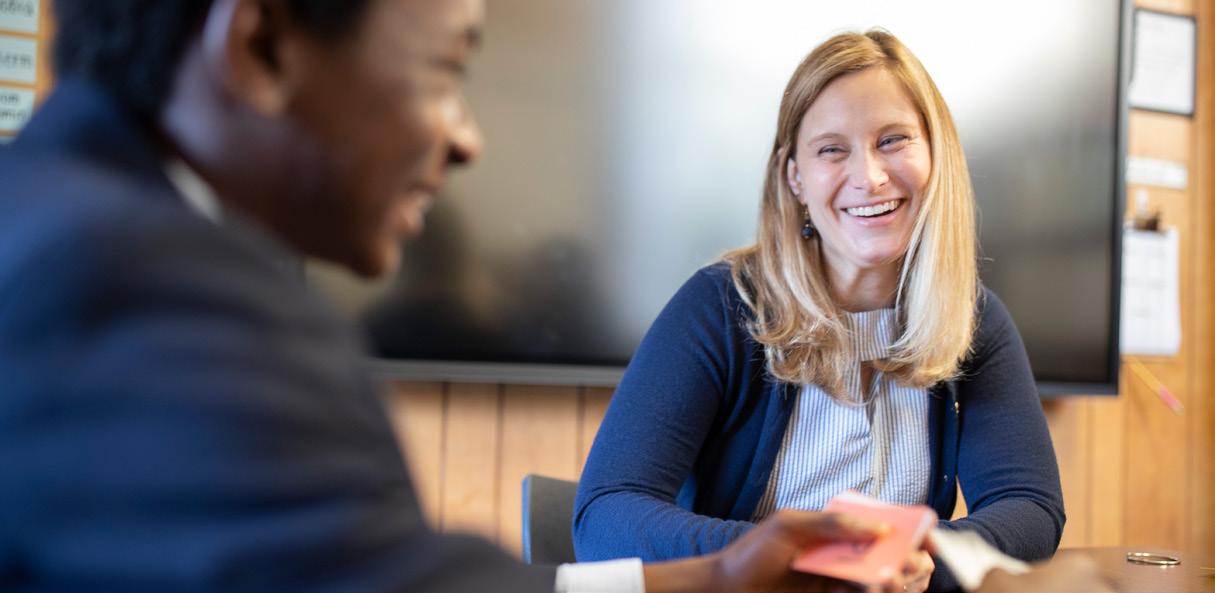

Dr. Hans Andrews, Distinguished Fellow in Community College Leadership, Olney Central College, Illinois, USA
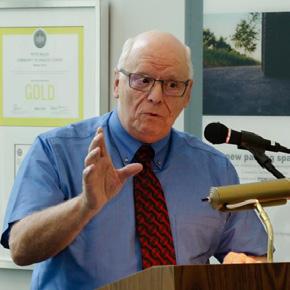
Dr. Hans Andrews is the Distinguished Fellow in Community College Leadership through Olney Central College in Olney, Illinois. He is a former president of the college. He also served as Dean of Instruction at Illinois Valley Community College and Vice President for Community and Student Services at Kellogg Community College in Battle Creek, Michigan. He was an adjunct teacher for Illinois State University and a business teachercounselor in two secondary schools.

Teacher evaluation does much to improve instruction in our schools if it is properly defined as to purpose, developed and communicated alongside the faculty in the school district. The intended outcomes of evaluation need to be focused on assisting each teacher through ‘formative’ evaluation.
Formative refers to assisting the teacher to make adjustments that will improve his or her classroom preparation and organization, and communication with their students in the class or classroom that the teacher works in daily. Formative evaluation continues to be important as teachers’ progress throughout their careers.
The following is taken from an interview with a teacher on how formative evaluation support made a difference in her teaching:
Interviewer: How did the evaluation system assist you?
Teacher: It assisted me by making me aware that the student is responsible for part of the teachinglearning process. I learned I was giving so much information that the students were frustrated. I also learned what was expected of me.
Interviewer: How did you feel when supervisors (evaluators) offered to assist you?
If the administrators who are tasked with teacher evaluation have not been teachers in their previous experiences, consideration needs to be given to utilizing quality teachers within the institution to assist in the evaluations
Teacher: I was relieved. My supervisors informed me of their expectations of my work. This gave me guidelines and ideas on how to improve my teaching. I used these ideas and guidelines and now feel good about what I am doing. I now knew what I needed to do to improve my teaching.
Interviewer: When did you feel it was starting to make a difference in your teaching?
Teacher: Recommendations included, don’t stand behind the podium, SMILE! Ask questions of my students. Before this, I was so exhausted from the extensive preparation I was doing I did
not put this together on my own. I needed to hear it from someone else.
Summative evaluation is used when a decision is made to not continue a teacher who has refused or have proved unable to respond to improvements offered by evaluator(s) during their formative evaluations.
The following case describes a teacher who had been receiving advice from his early evaluation visitations. Classroom teaching concerns had
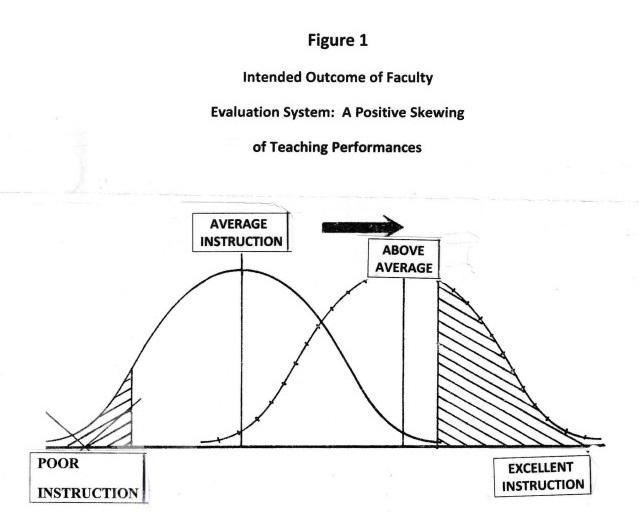
been outlined and discussed with the teacher by both evaluators who had visited his classes. After some initial improvements the instructor regressed to his prior identified areas of deficiency. Here are some of the comments from the evaluations that were given both verbally and in writing as evaluations continued.
Evaluator: The test was passed back but you did not review it except for one question. Students continued to raise their hands but you gave an indication you would take no further questions. You also need to pace your material and start having student involvement during your lecture material. Students became very passive as you continued lecturing without involving students for input and understanding. You also need to come into the classroom on time!
Instructor: I will work to make some of these improvements.
Evaluator (four evaluations later): I was disappointed with your lecture. You again did not involve your students. You came to class unprepared as we had found in previous evaluations. You need to speed things up and make them more interesting. I did not observe any constructive changes in your teaching methods from a year ago. You have continued to not respond making the changes to improve your teaching that has been suggested. This has been the case now for your three-year non-tenure period.
This instructor was informed that he would not be offered tenure (or long-term contract) and he tendered his resignation.
If the administrators who are tasked with teacher evaluation have not been teachers
in their previous experiences, consideration needs to be given to utilizing quality teachers within the institution to assist in the evaluations. Another option is to seek out recently retired quality teachers to be hired back to assist in the evaluation of teachers in their area of competencies in their teaching.
The following are some of the expectations that teachers should have to come out of an evaluation system:
● Competent evaluators
● A clear understanding of the evaluation system and evaluation instruments
● Input into setting up and/or improving the system
● Feedback from the evaluator in a relatively short time to alleviate anxiety
● Have the ability to express disagreement (both orally and in writing)
● Be given a reasonable amount of time to make improvements and/or remediate weaknesses
● Recognition for excellence in teaching
● Privacy of results except when a state calls for governing board action on a ‘notice to remediate’ and or moving to a dismissal of personnel
Figure 1 shows graphically what should be the outcomes of a quality evaluation system in a school district.
● The right hand side of what is referred to in Psychology as the normal curve represents how ‘above average instruction’ will move more teachers into the ‘excellent instruction’ category.
Teachers who were not of high quality were continued, and may be continued as teachers as there is an international shortages that is reaching a crisis
● The left hand side of the curve should end up eliminating the ‘poor instruction’ category.
● The center two tops on the curves show how a much larger part of ‘average instruction’ will move to ‘above average’ instruction.
The importance of quality evaluation and quality evaluators of teachers cannot be overstated. During the Pandemic years evaluation of teachers appear to have taken a back seat on many areas of the world. Teachers who were not of high quality were continued, and may be continued as teachers as there is an international shortages that is reaching a crisis.
Summary statement: This article shows the importance of improving evaluation of teachers and how it can, if properly administrators
can, and will, improve instruction for our students everywhere.
Evaluation: the system of determining the merit, value, and worth of someone (the person, such as a teacher) being evaluated:
● Formative Teacher Evaluation: An evaluation conducted for the purpose of improving the teacher through identifying that teacher’s strengths and weaknesses.
● Summative Teacher Evaluation: An evaluation conducted primarily for the purpose of making personnel decision about the teacher (e.g., improved pay or deduction, reassignment, promotion, dismissal, or tenure/or/long-term employment decision).


Located in Wheeling, West Virginia, The Linsly School is a private, independent day and boarding school for students in grades 5 through 12. It is accredited by the Independent School Association of the Central States (ISACS) and is also a member of the National Association of Independent Schools (NAIS) and The Association of Boarding Schools (TABS).
“We at The Linsly School aspire to prepare well-rounded, responsible global citizens who excel throughout their academic studies, professional careers, and civic involvement,” shares Mr. Justin Zimmerman, Head of School.
The Linsly School has a proud and rich history of over 200 years. It dates back to 1814, when a visionary young lawyer, Noah Linsly, left instructions

The Linsly School promotes academic excellence, inspires lifelong learning, develops future leaders, and emphasizes character development.
and the resources to construct a school for the young people of Wheeling. Chartered as a Lancastrian Academy, the school occupied two sites, on 13th Chapline Streets and 15th Eoff Street. At that time, admission was limited to boys.
By 1877, the academy was known as Linsly Military Institute, adopting a military school’s dress and discipline. However, it was Linsly students, through their academic and athletic achievements, who generated the enthusiasm of its leaders to continually
expand the Linsly facilities. Owing to this, the school changed from a military structure to a traditional boys’ college preparatory school to finally a coeducational school. In 2014, The Linsly School celebrated its 200th Anniversary and continued to fulfill its founder’s words, “Forward and no retreat.”
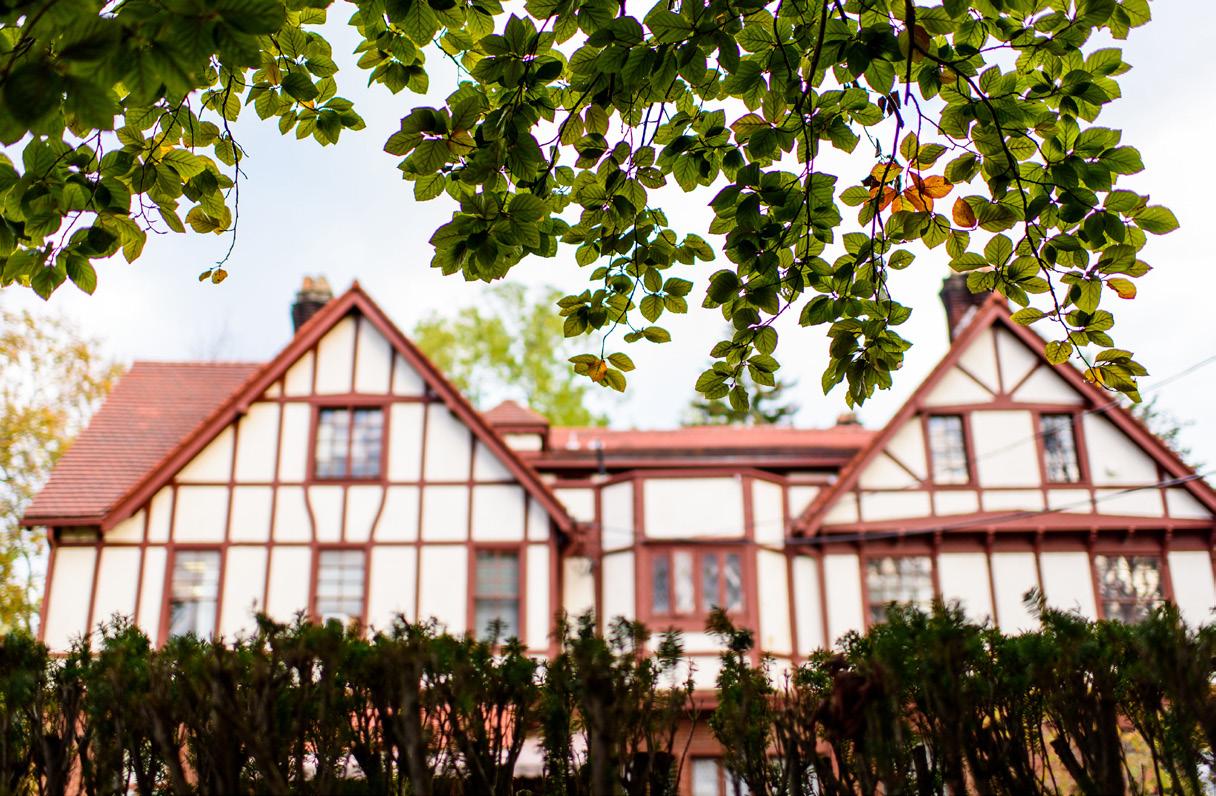
The Linsly School offers a college preparatory curriculum for students in grades 5 through
12 that combines the traditional values of hard work, respect, honor, honesty, and selfdiscipline within a challenging academic program designed to unlock the potential of each student. Likewise, it is the expectation that all Linsly students strive for excellence in seven academic performances such as communication, collaboration, critical thinking, technological literacy, creativity, inquiry, and leadership. This unique combination of character performance and college preparatory courses sets the foundation for a Linsly graduate to prepare to lead and succeed in college and beyond.
In addition, The Linsly School recently established the James F. Companion Leadership Institute, a grade 9-12 leadership development curriculum for all students. This program emphasizes leadership development, college counseling, career planning, and preparing Linsly students to be well-rounded and confident service-oriented leaders throughout their life. Moreover, to encourage creativity and innovation in students, Linsly uses the Understanding by Design (UbD) Curriculum Planning Framework, incorporating middle school portfolio reviews, regular PBL projects, and authentic assessments through its Middle School STEAM (Science Technology Engineering, Arts and Mathematics) Program.
At Linsly, the student-to-teacher ratio is 1:7, and small class sizes with an average of 12 students per class. Regarding the educational approach, the school provides individualized education to help its students reach their full potential.
Located in Wheeling, West Virginia, The Linsly School offers college preparatory classes that combine the traditional values of hard work, respect, honor, honesty, and selfdiscipline within a challenging academic program designed to unlock the potential of each student.

If a student needs extra help, the faculty is available to offer individual support and oneon-one instruction before and after school hours. Likewise, Linsly offers a peer tutoring program and a unique academic support program known as the Aviator Program for those students who need additional guidance.
The Linsly teachers are experts in their subject content area and well-versed in teaching and
learning methods and pedagogy. They not only bring curriculum plans and objectives to life but are also interested in the overall development of their students. To make this happen, the faculty creates a supportive environment where students feel comfortable taking risks and challenging themselves.
Alternatively, The Linsly School offers professional development opportunities annually based on well-researched best practices and provides extensive funding for faculty members to participate in off-campus
Every year since 1996, Linsly students have been guided by a theme that has been carefully selected to instill an important philosophy in their academic and personal lives.

workshops, conferences, graduate work, or other training programs.
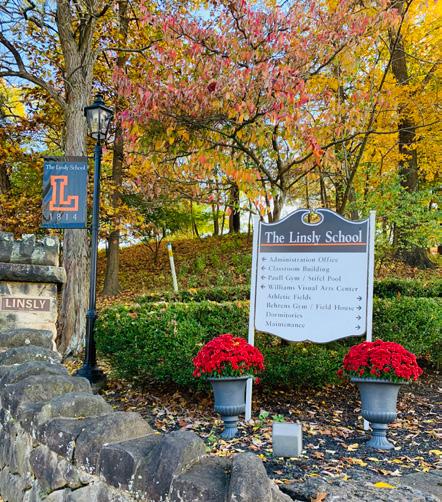
The Linsly School nurtures a family-like atmosphere that helps students to grow and develop under the guidance of faculty members who know them by name and care about their future. Academic excellence and character development are woven through all dimensions of a Linsly education to foster the whole person—intellectually, ethically, and physically. With 100% college placement, Linsly’s record as an excellent college preparatory academy speaks for itself.
As a result, every day, Linsly students develop a love of learning; lead in times of challenge, and live purposeful lives. This engaging experience makes education at Linsy truly unique.
“As teachers, coaches, advisors, club leaders, theatre directors, and dorm parents, we welcome the opportunity to get to know our parents and their children both inside and outside of the classroom,” shares Mr. Zimmerman. Together, as partners in their education, the Linsly faculty works with parents and students to help them discover their strengths and weaknesses and to nurture students through their educational journey. He further adds, “In a constantly changing world where we are uncertain about what the future holds for our students, we are committed to challenging our students to work hard academically and also to practice the skills they will need for success in college and beyond.”
Additionally, Linsly has an engaged Linsly Parent Association (LPA) where parents often volunteer to help day and boarding students have memorable experiences throughout the year. The school also takes great pride in weekly communicating with parents through the Linsly Ties Newsletter and regular videos and other social media posts.
The Linsly School’s scenic 57-acre campus offers an ideal setting for a safe and vibrant learning community. Furthermore, Linsly’s newly renovated Banes Hall serves as the school’s primary academic building, housing twenty-seven classrooms, modern science laboratories, continually upgraded computer centers, a technology-rich library, music room, swimming pool, and cafeteria. In addition,
the Williams Visual Arts Center provides topquality studio, classroom, and gallery space, while the Hess Center offers equipment for students interested in woodworking. The Dlesk Conference Center is a unique place for meetings or simply searching the Linsly history archives.
Apart from these, Linsly’s Stifel Field House is the home facility for Linsly athletics and has modern and newly renovated locker rooms, a performance weight room, an athletic training room, and indoor practice and competition space for basketball, volleyball, wrestling, and cheering. The school also has an all-natural grass football/lacrosse field, tennis courts, and a baseball and softball field on campus.
In the wake of the COVID-19 pandemic, The Linsly School prioritized a student-first approach that helped students worldwide. The Head of the School, Mr. Zimmerman, shares that the school never closed its dorms and had boarding students residing on campus even while the government officials forced the school to shift to remote instruction. When the Governor of West Virginia forced all public, private, and parochial schools to shift to remote instruction, Linsly boarding students
had a tremendous advantage. First, they could remain at school, and although classes were being taught virtually for a period, they had daily access to their instructors who resided on campus. In addition, Linsly instructors were very well-versed in using online tools to teach ‘live’ synchronous classes, unlike other schools.
Consequently, boarding students from Linsly never stopped learning and remained engaged. In addition, boarding students who could not return due to the pandemic for the fall of 2021 had a 100% virtual option with classes being taught by Linsly teachers. This kept them engaged and prevented them from missing significant learning opportunities.

The Linsly School is guided by its bold strategic plan, Forward Together! Enhancing Excellence and Innovation. This plan guides improvements in program excellence and innovation, new residential, athletic, and performing arts facilities, and enhanced endowment support for financial aid and faculty support. Moreover, the school is planning to break ground on a new 48bed dormitory which will also have faculty apartments for four full-time faculty/staff and their families by this fall.

Dr. Heru Keonté, School Principal, John P. Holland Charter School, USA
Dr. Heru Keonté is a middle school principal, serving studentsinanurbandistrictlocatedinNorthernNewJersey.

A product of public-school education, he is passionate about elevating the scholarship, creativity and ardor of his students and staff members. Heru previously worked as a middle school language arts teacher for thirteen years before becoming an administrator. He incorporates team work, community service and an open-minded mentality into his instructional leadership.

We don’t have enough quality teachers to facilitate our students. In classrooms across the country, particularly in our larger cities, there is teacher shortage that continues to fester. Many students that were already lagging in proficiency haven’t had quality instruction since before the pandemic began. Now, with overcrowded classrooms, inept substitute teachers and overwhelmed professionals, there is little evidence that millions of students will ever make up for lost time.
An overhaul in the pay scale for public school teachers is long overdue. For decades, even centuries, society has convinced educators that one doesn’t come into this profession expecting economic prosperity.
Despite education being the bedrock of any advanced nation, government bureaucracy has stifled the elevation of the profession to the prestigious status it so greatly deserves. The medical field, law enforcement, science and engineering are all examples of careers that are touted and celebrated in society while education fails to gain such allure. All professions begin with schooling. For too long, society as a whole has taken school teachers for granted. Fortunately for these underappreciated frontline-workers, those days may be coming to an end. Because of the pandemic, the increasing shortage of publicschool teachers has only been exacerbated. In order to spark significant interest in teaching, major pay increases have to happen.
Nationwide, an estimated 37,000 teaching positions are currently vacant. If you include
Because of the pandemic, the increasing shortage of public-school teachers has only been exacerbated. In order to spark significant interest in teaching, major pay increases have to happen
noninstructional employees such as bus drivers, counselors and extracurricular instructors, the number is significantly higher. So why is there such a teacher shortage? Is it strictly because of the lack of adequate compensation? Even before the COVID-19 pandemic, there were a number of targets where the finger could be pointed. Never ending changes to policies and requirements combined with picket lines for extra pennies has made the prospect of becoming a teacher unattractive. For years, the enrollment numbers for education majors at colleges and universities has been in decline. Many students see no value in spending years and thousands of dollars on degrees only to embark upon a profession that will never get them out of student loan debt.
Now, many districts, particularly in urban areas are scrambling to recruit the best available talent. Bidding wars for teachers mirror big city housing markets. The talented are going with the highest bidder, oftentimes leaving previous schools with looming vacancies. In the end, our students are the ones who suffer. After years of covid uncertainty and subpar lessons, millions of students struggle to reach grade level proficiency. Overworked teachers either resign, retire or provide perfunctory lessons lacking innovation and rigor. As this downward spiral continues, administrators and policymakers are searching for solutions.
One classic solution to industry shortfall is to go global. America doesn’t have a patent on quality education. If we begin to recruit talent from around the world, we may see an increase of enrichment in the classroom. There are literally millions of hardworking instructors worldwide looking for the opportunity to prosper. As long as they are qualified, the international community should be considered an option.
Furthermore, administrators have to remember they are educators. The belief that principals and supervisors can remain secluded from the classroom in an already top-heavy system is outdated. Having administrators teach lessons, whether there is a shortage or not, is a benefit to all concerned. It allows them first hand insight to the needs and potentials within the classroom. It intensifies the debate for higher wages for classroom teachers and promotes strong camaraderie and teamwork.
Teacher shortages occur when personal interests don’t meet public demand. If education becomes a lucrative endeavor, specifically in the classroom, you will see an influx in quality and adequate instruction. Where education thrives, so goes the society that cultivates it.
Overworked teachers either resign, retire or provide perfunctory lessons lacking innovation and rigor. As this downward spiral continues, administrators and policymakers are searching for solutions

